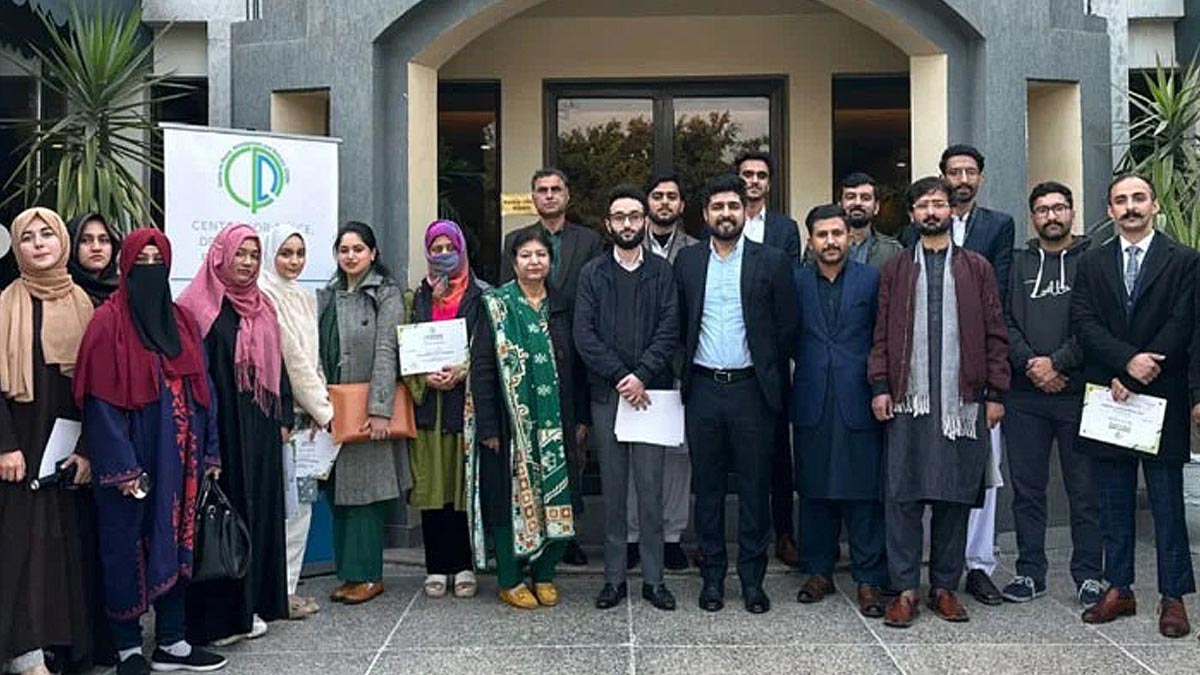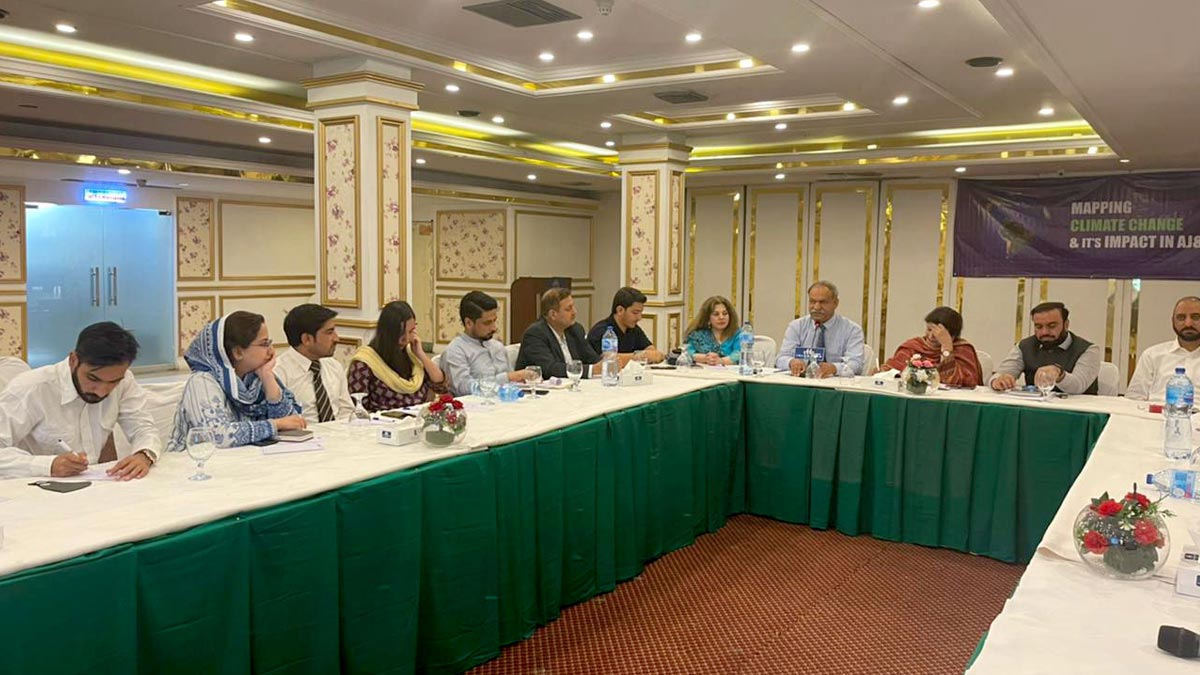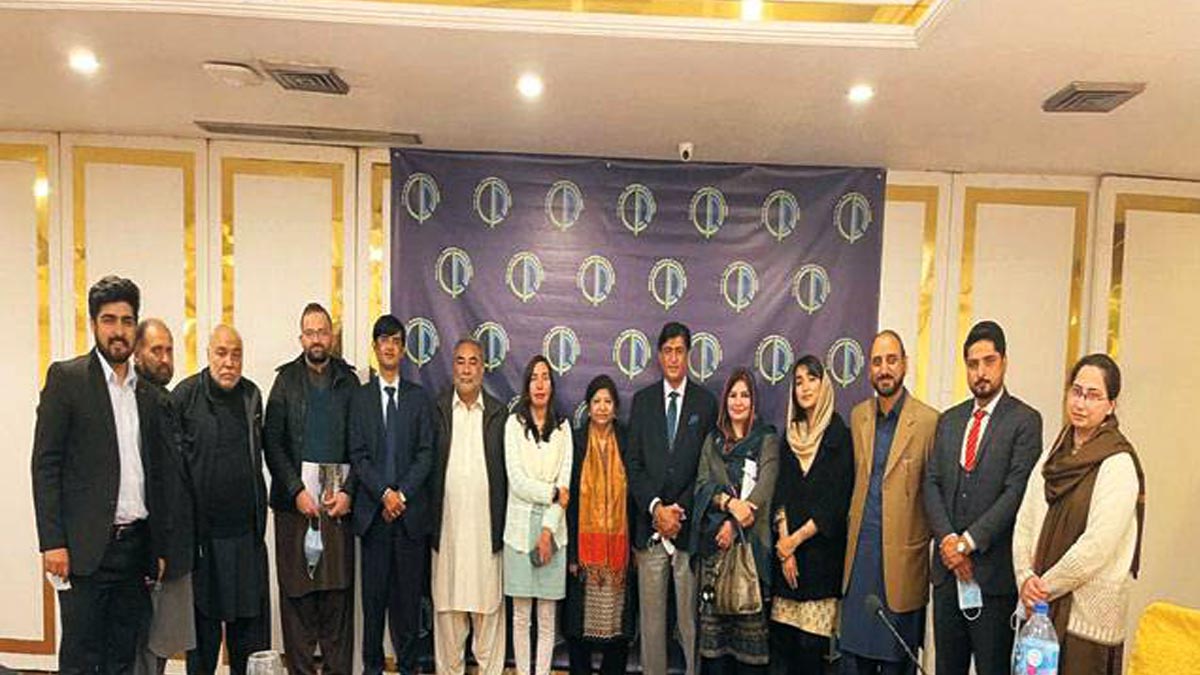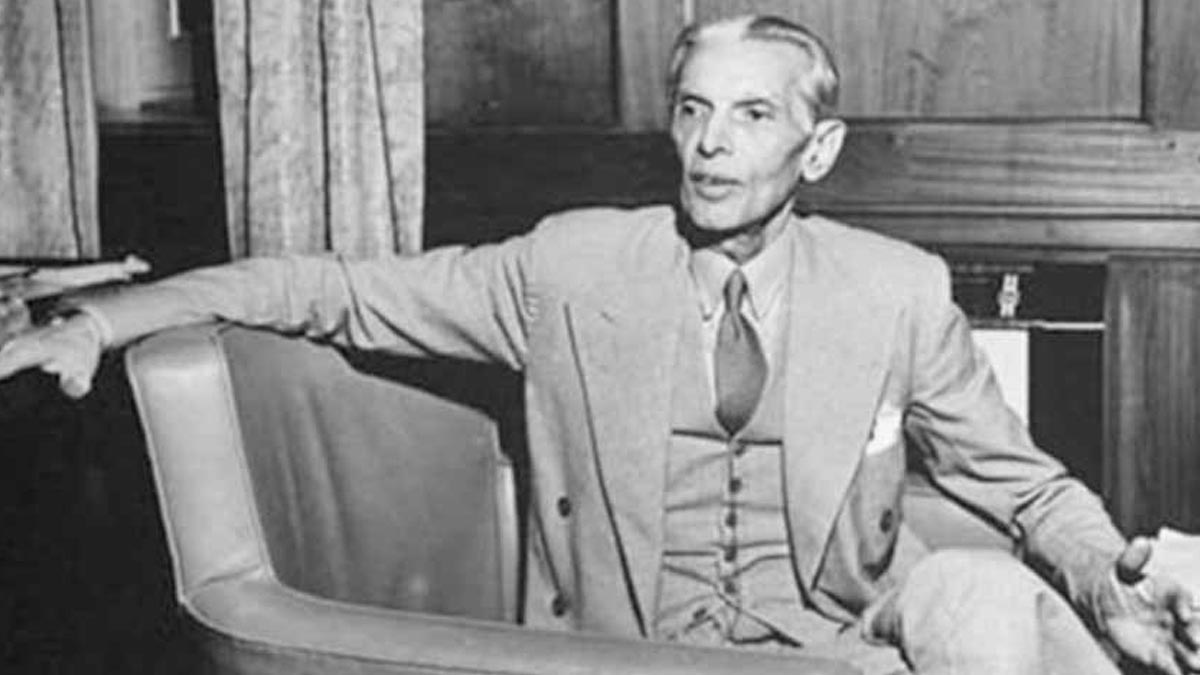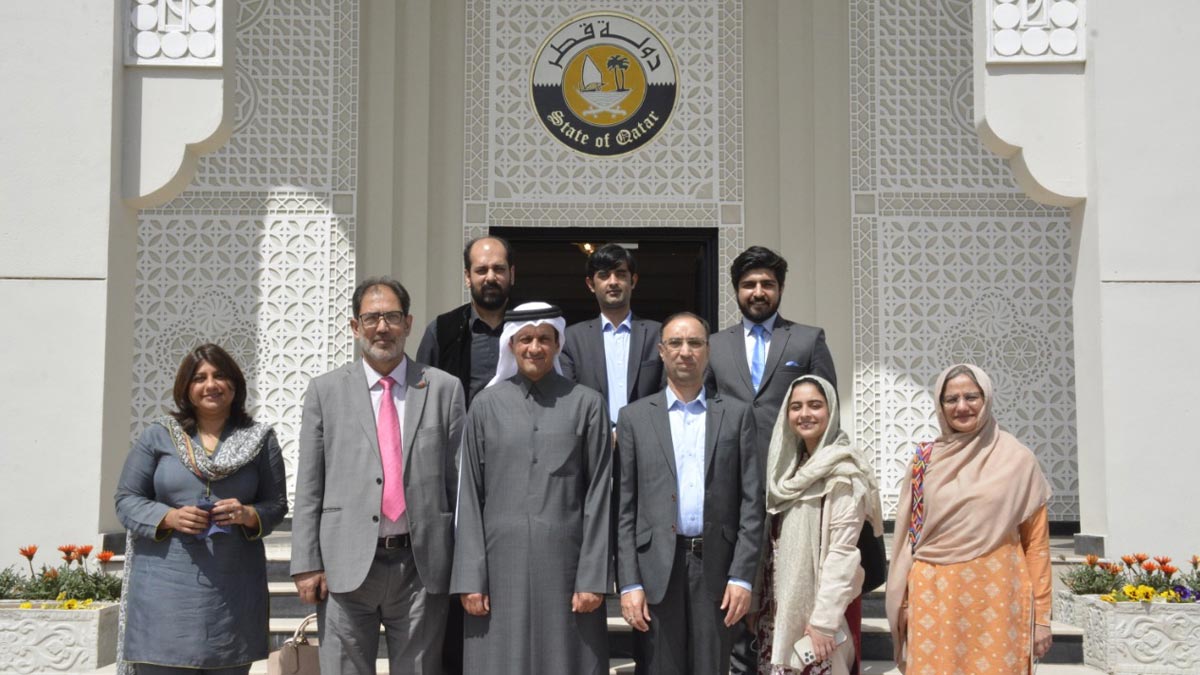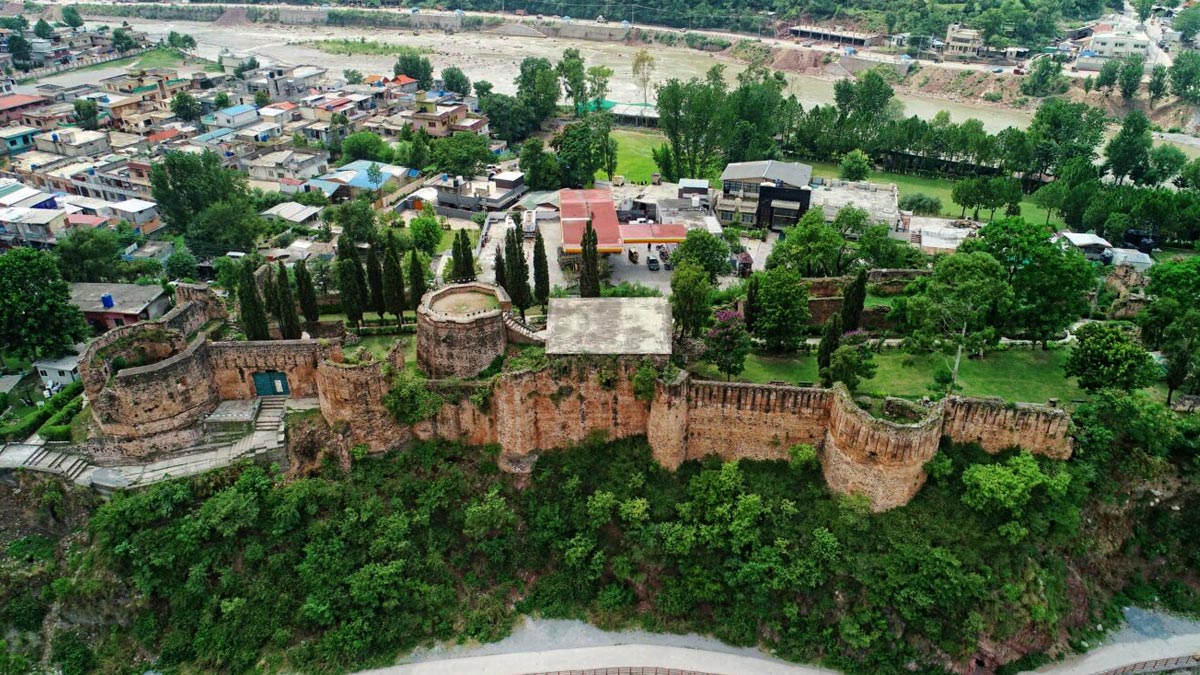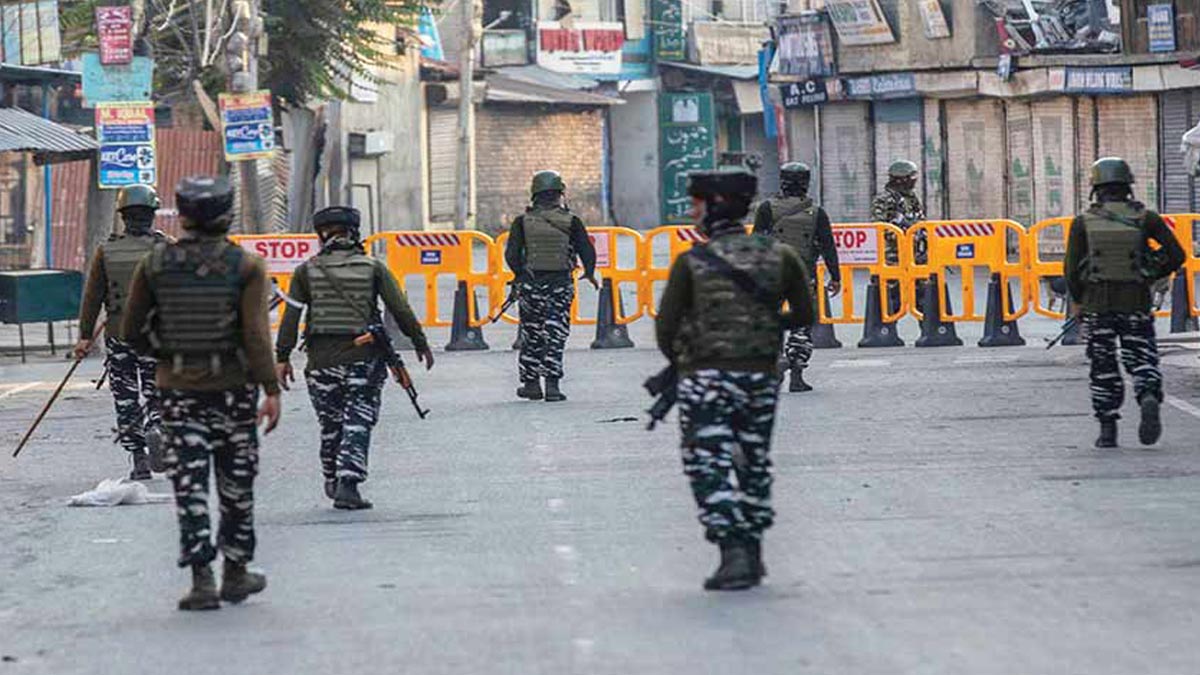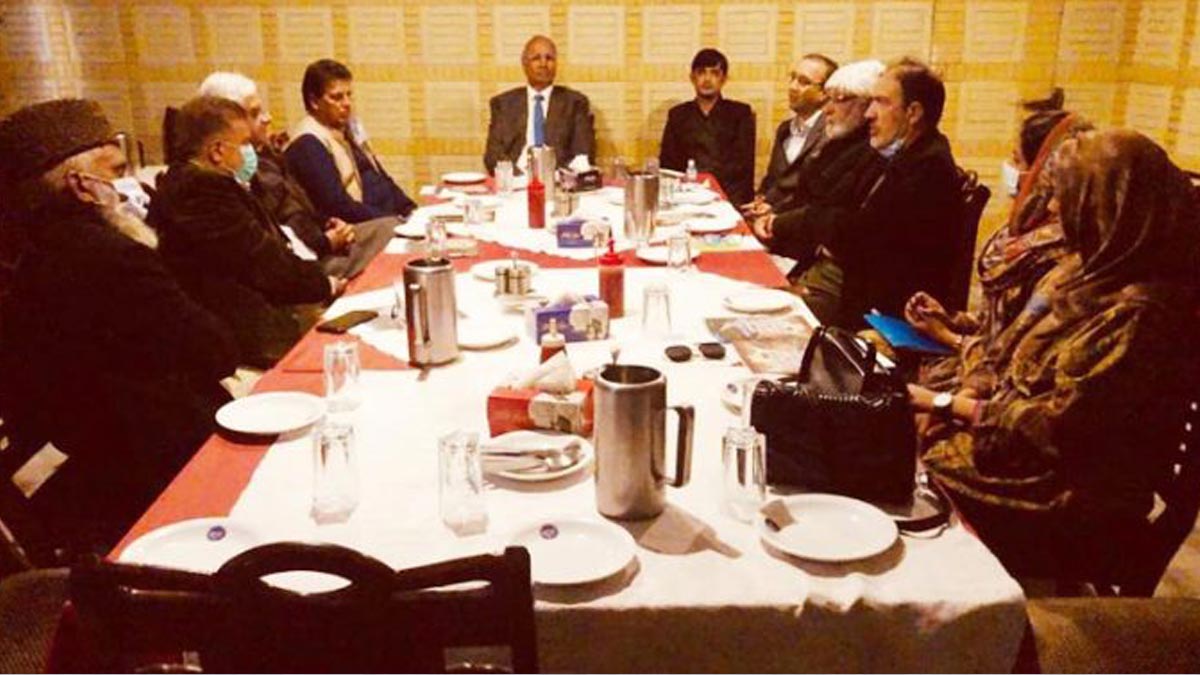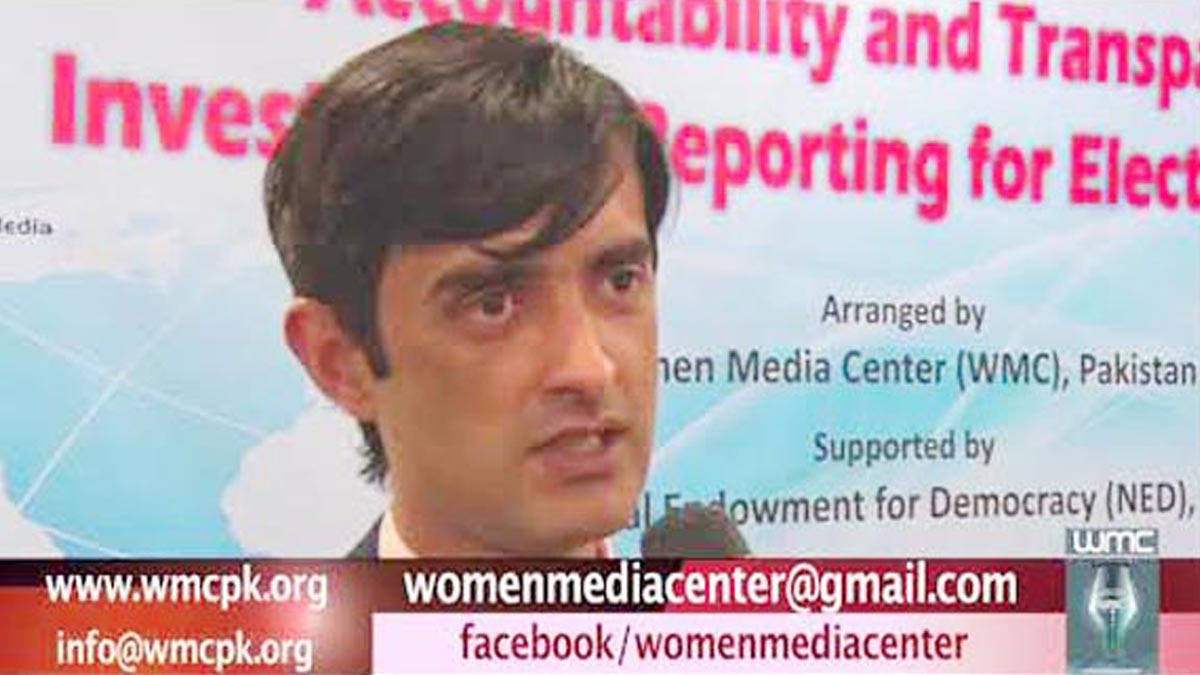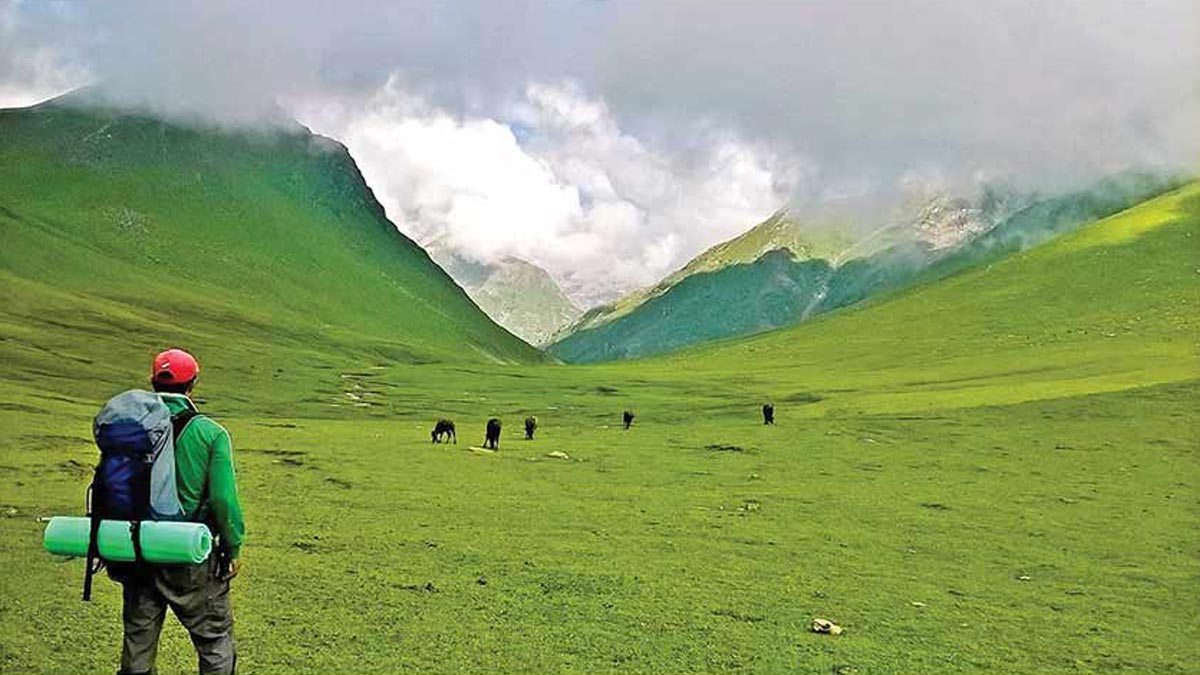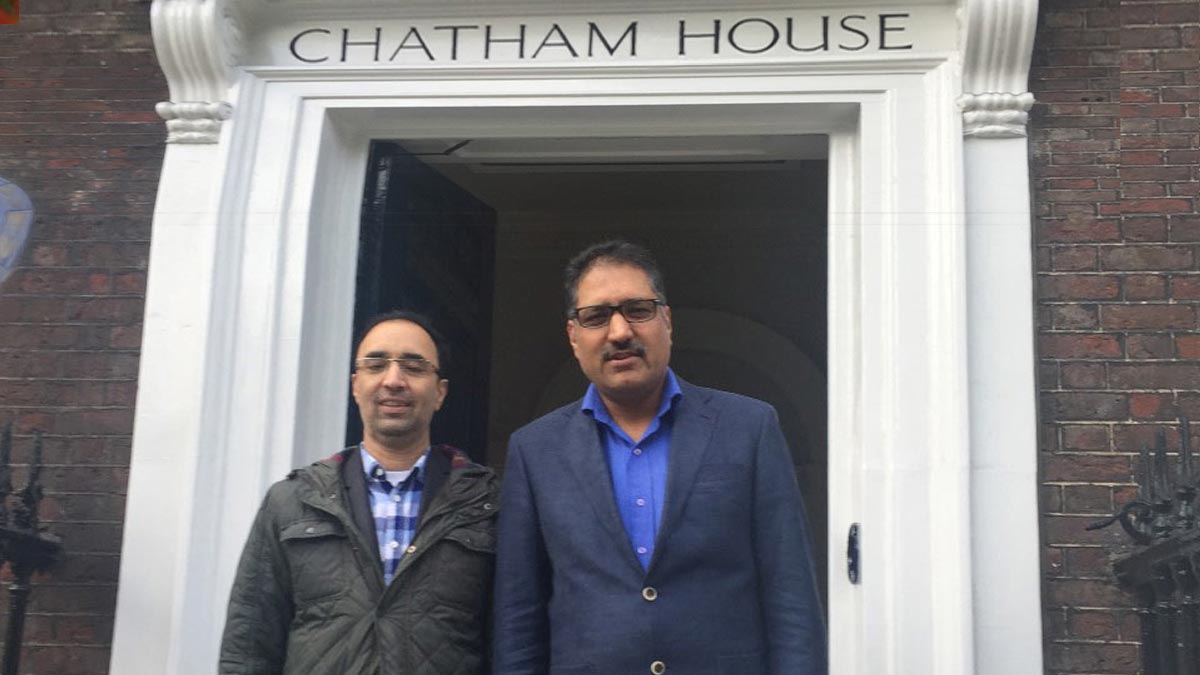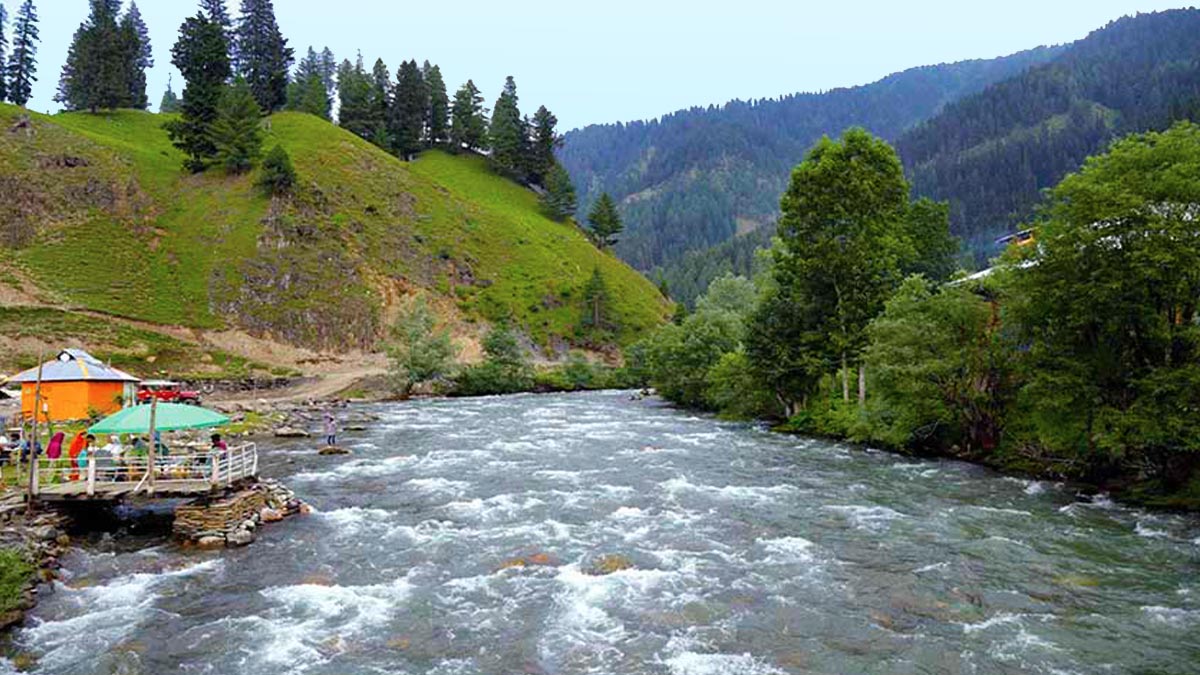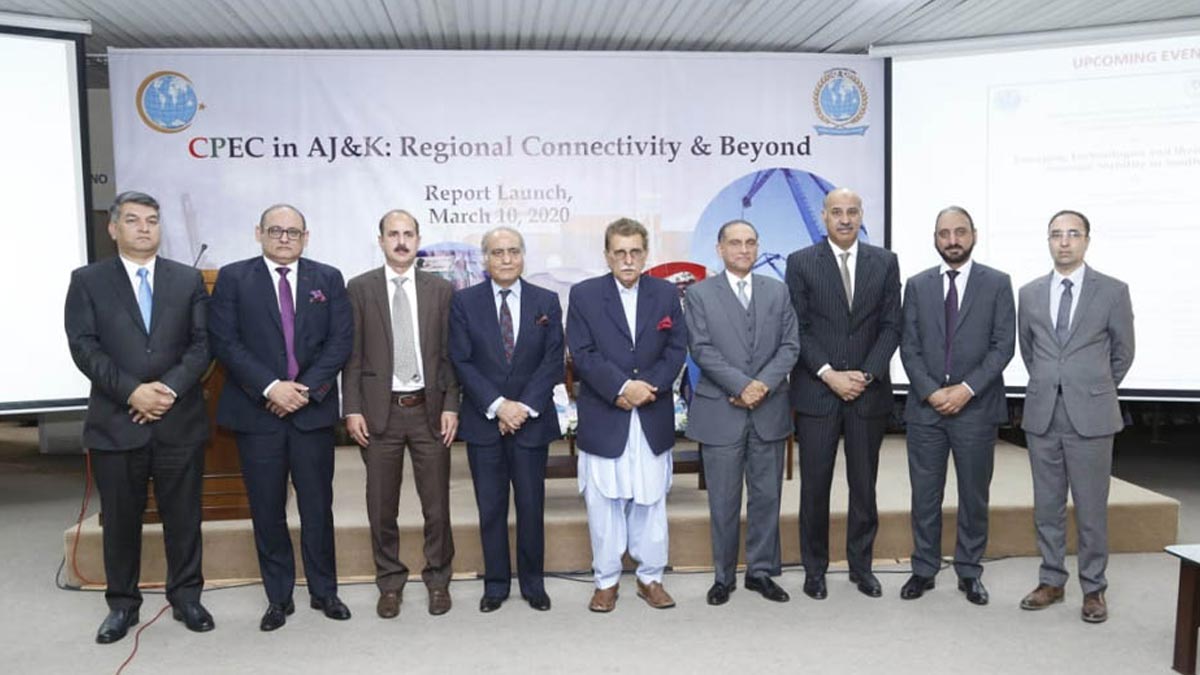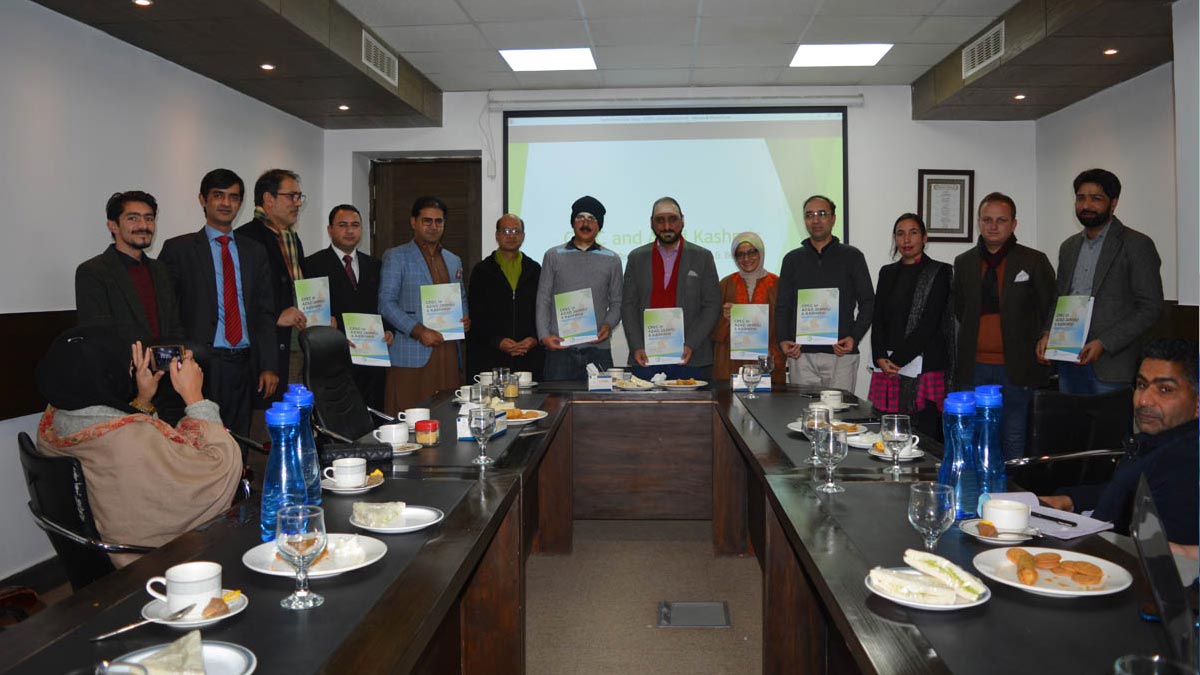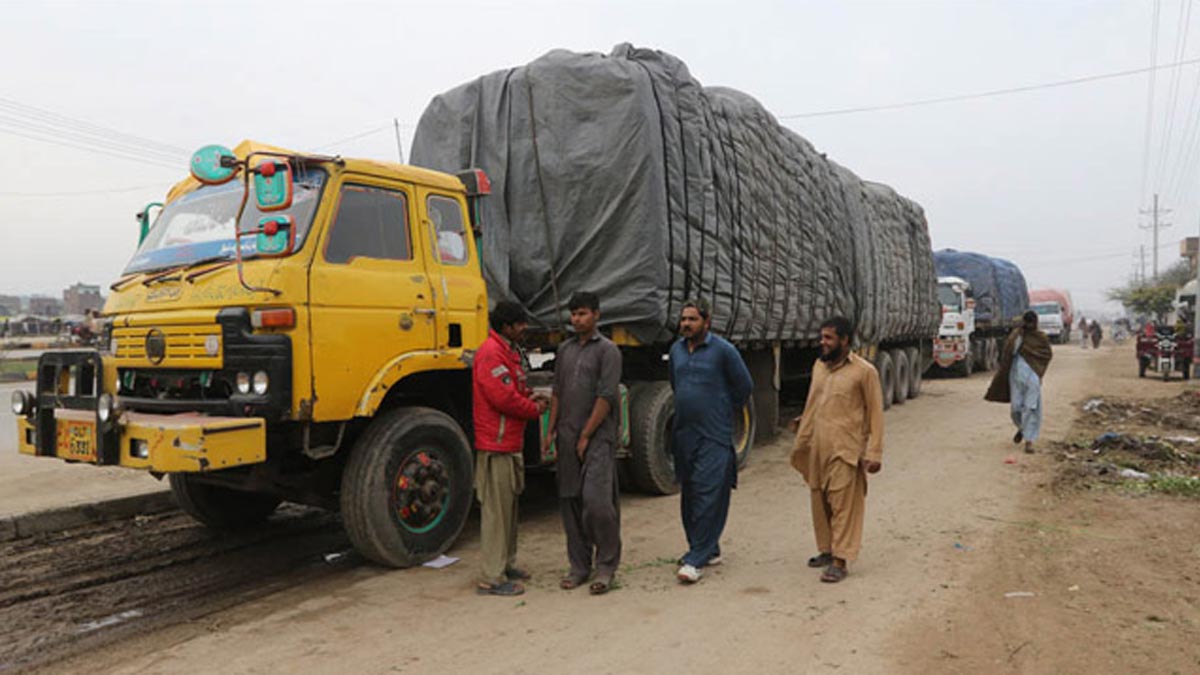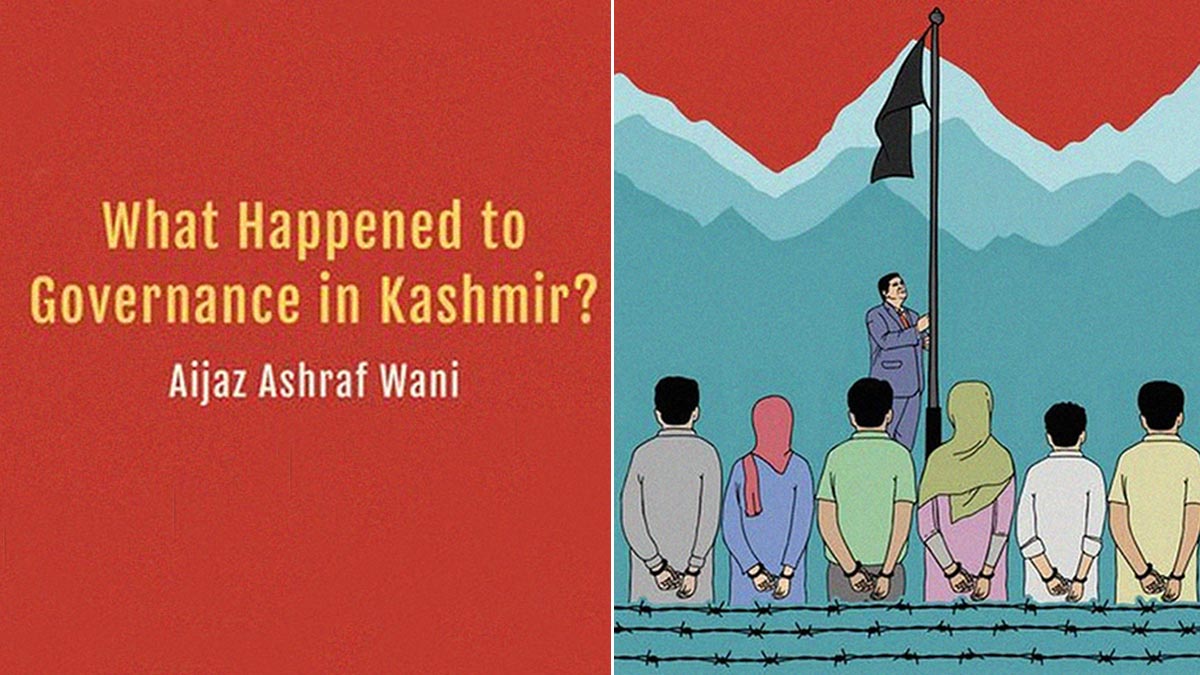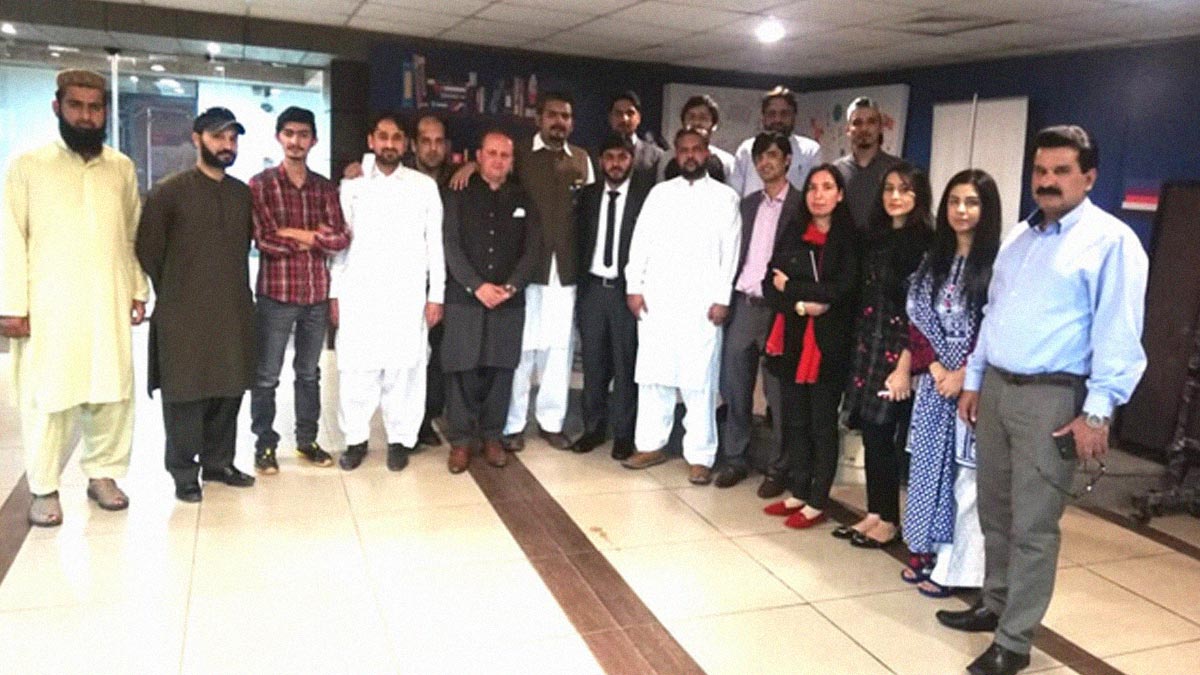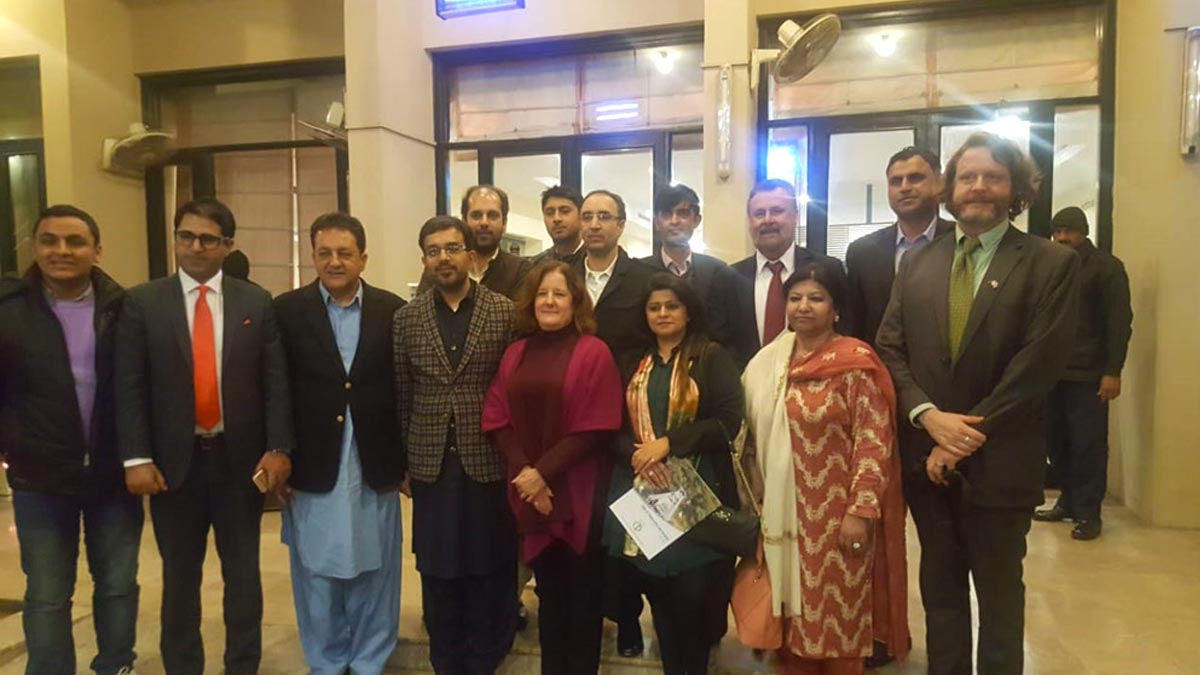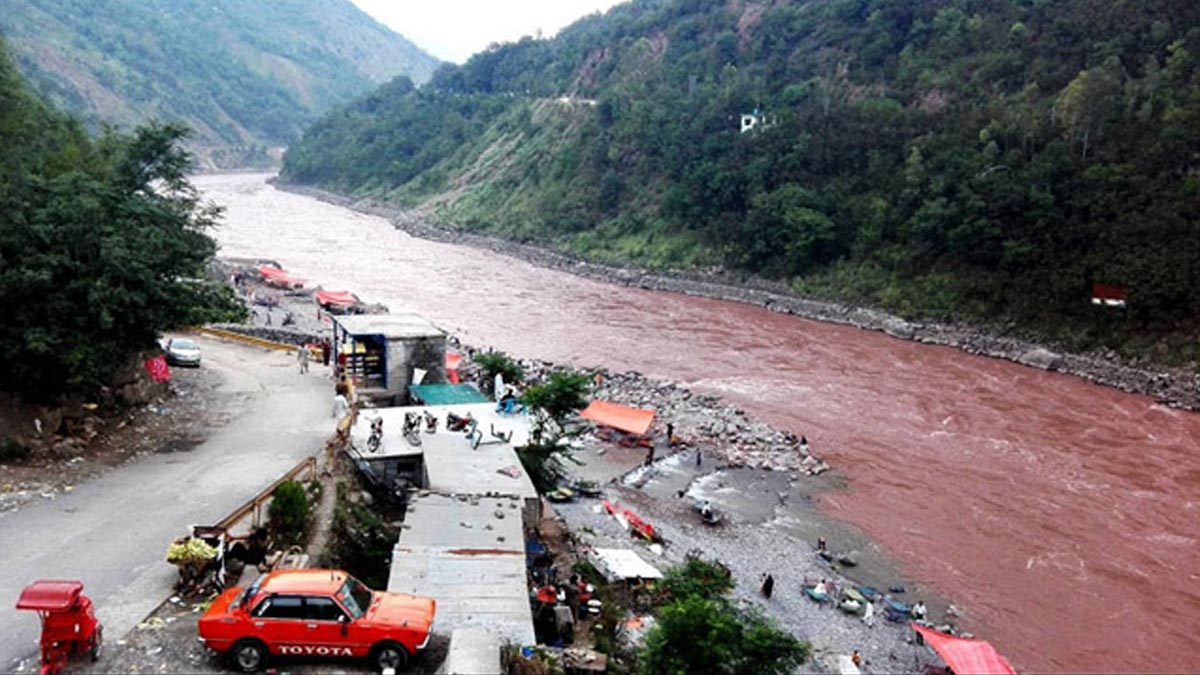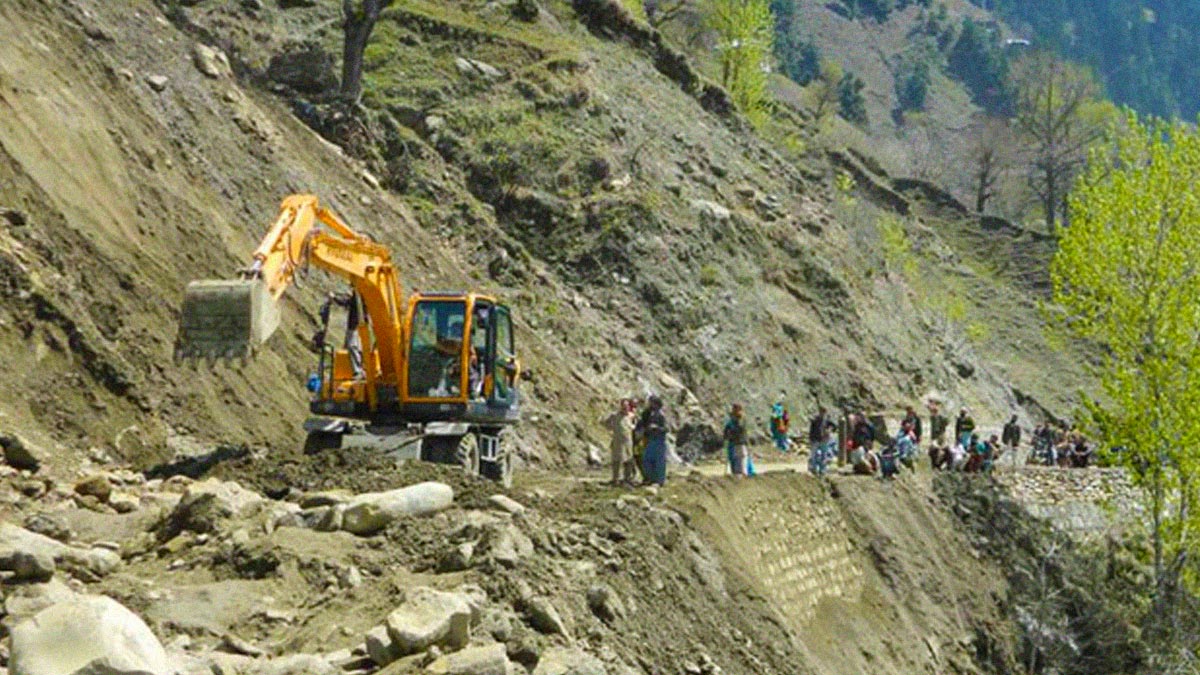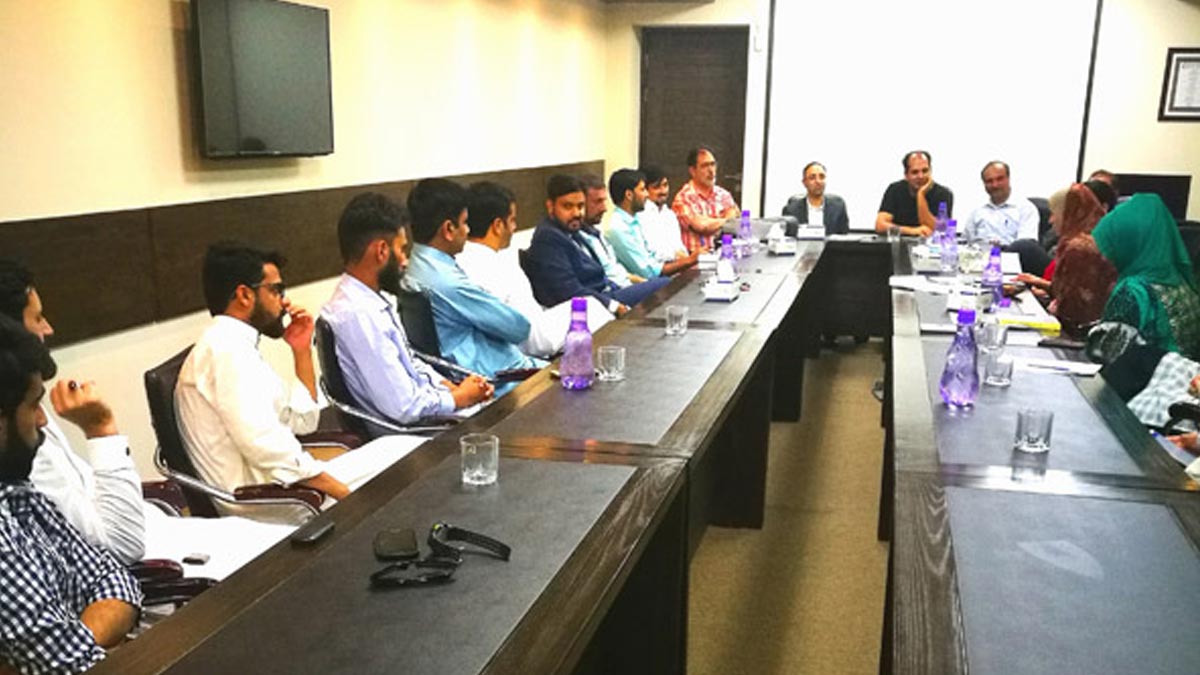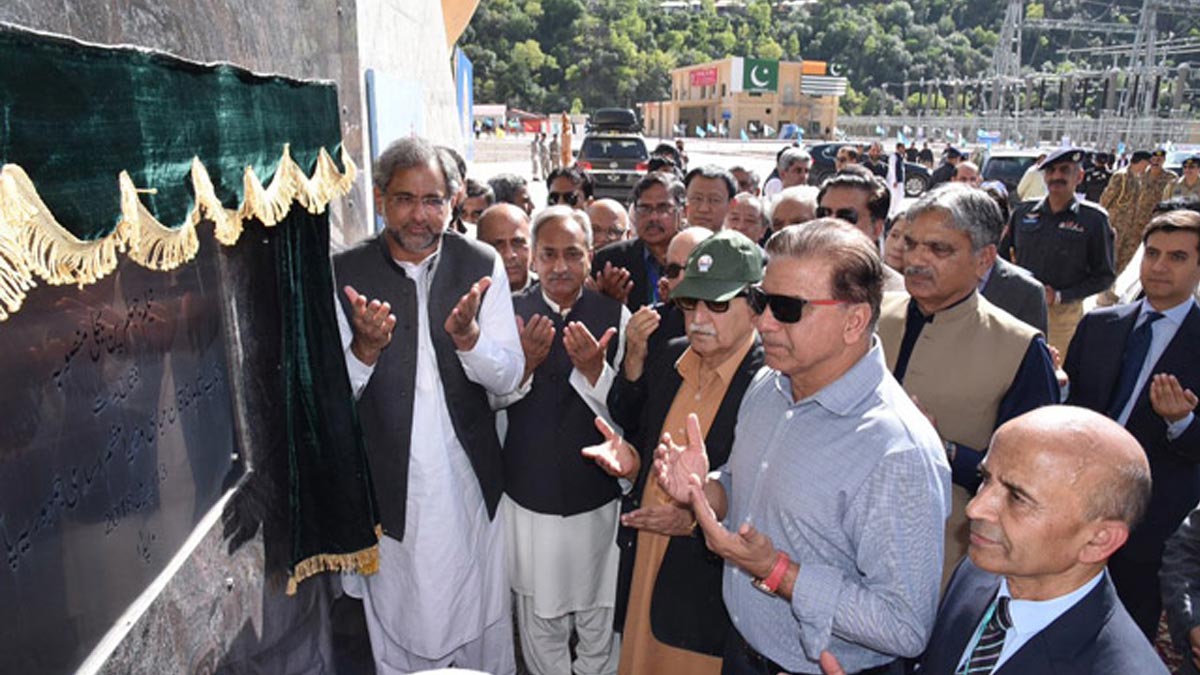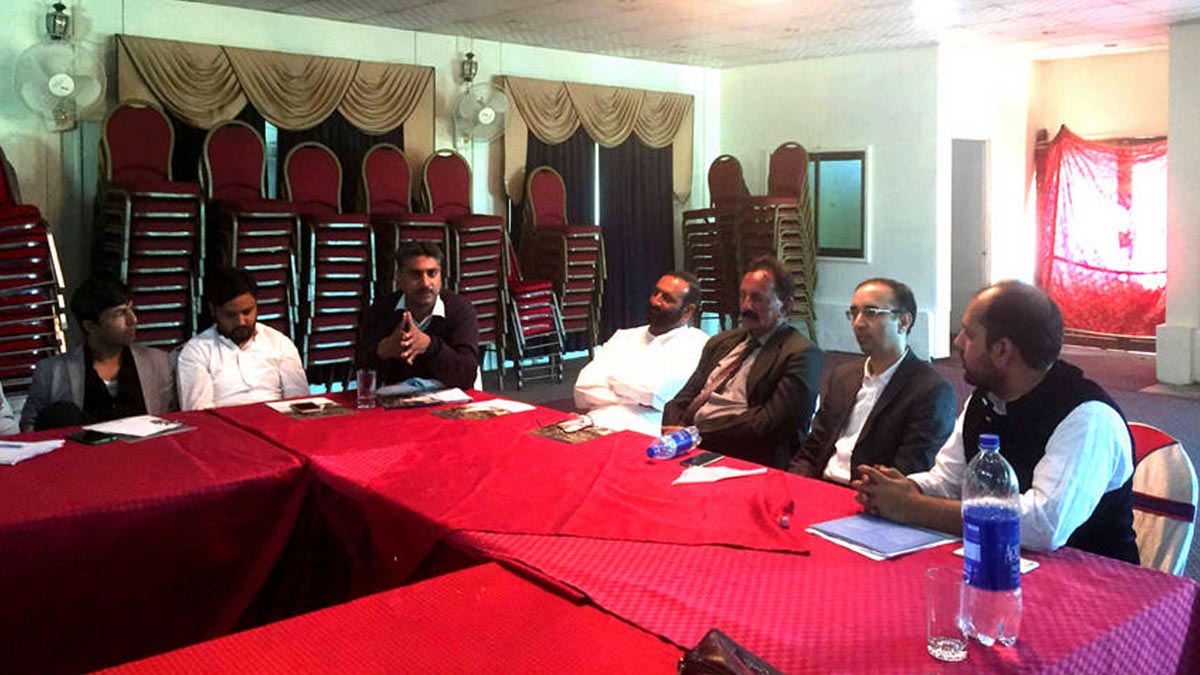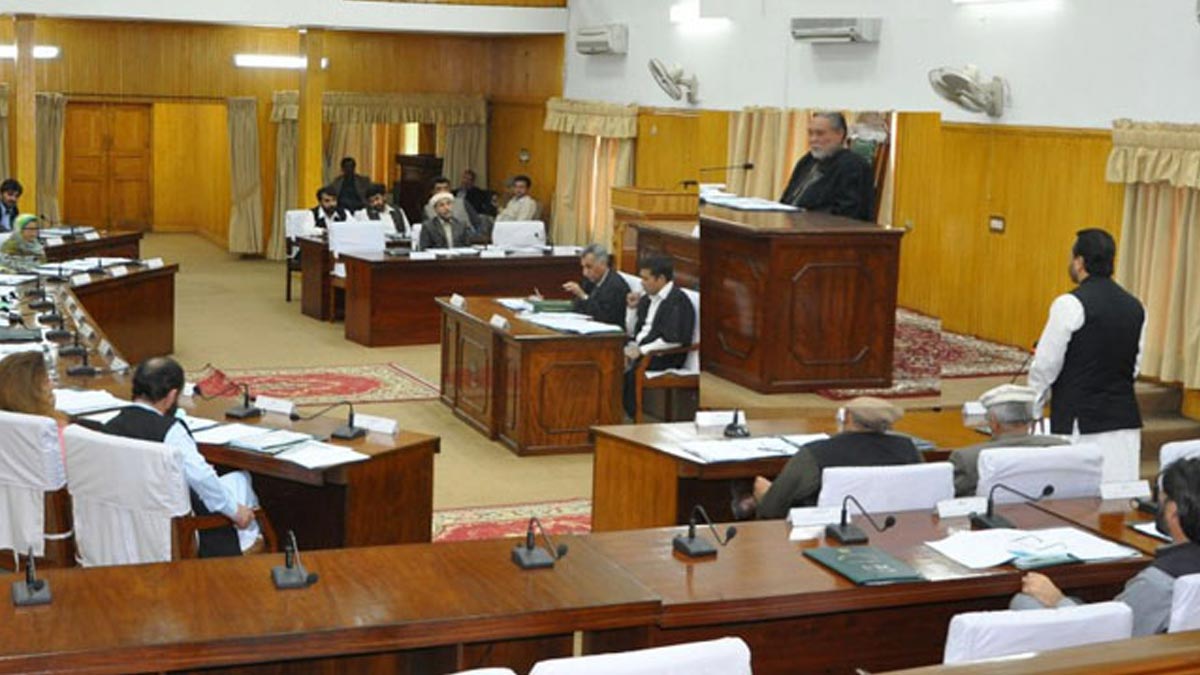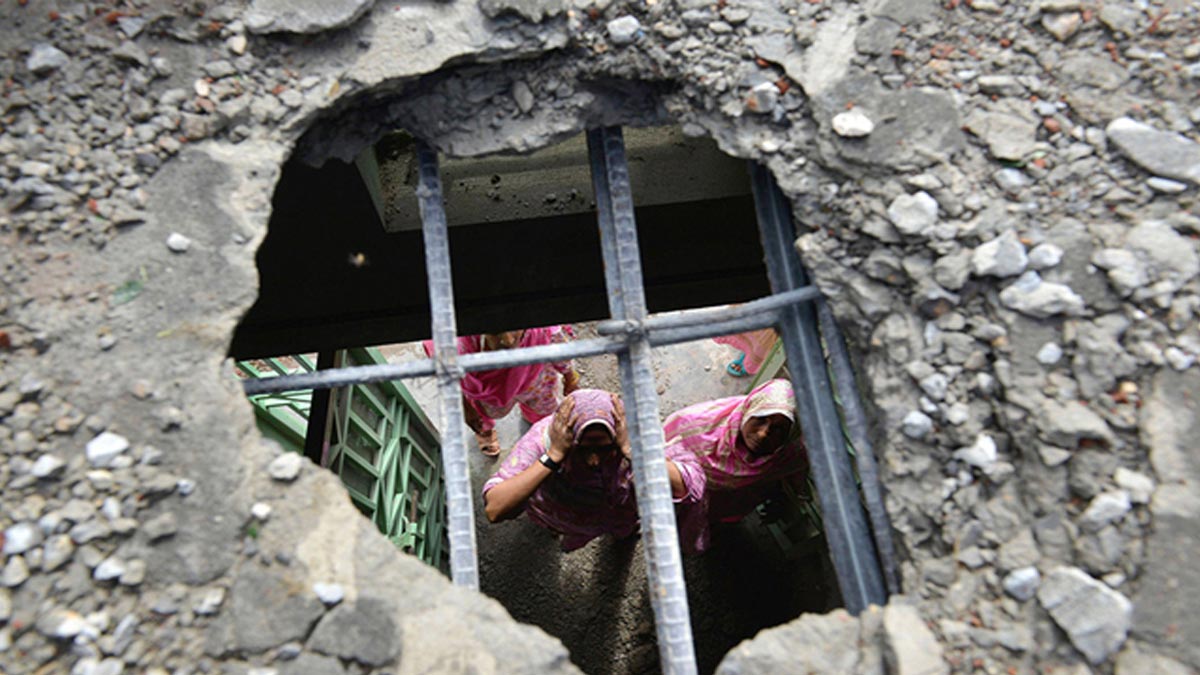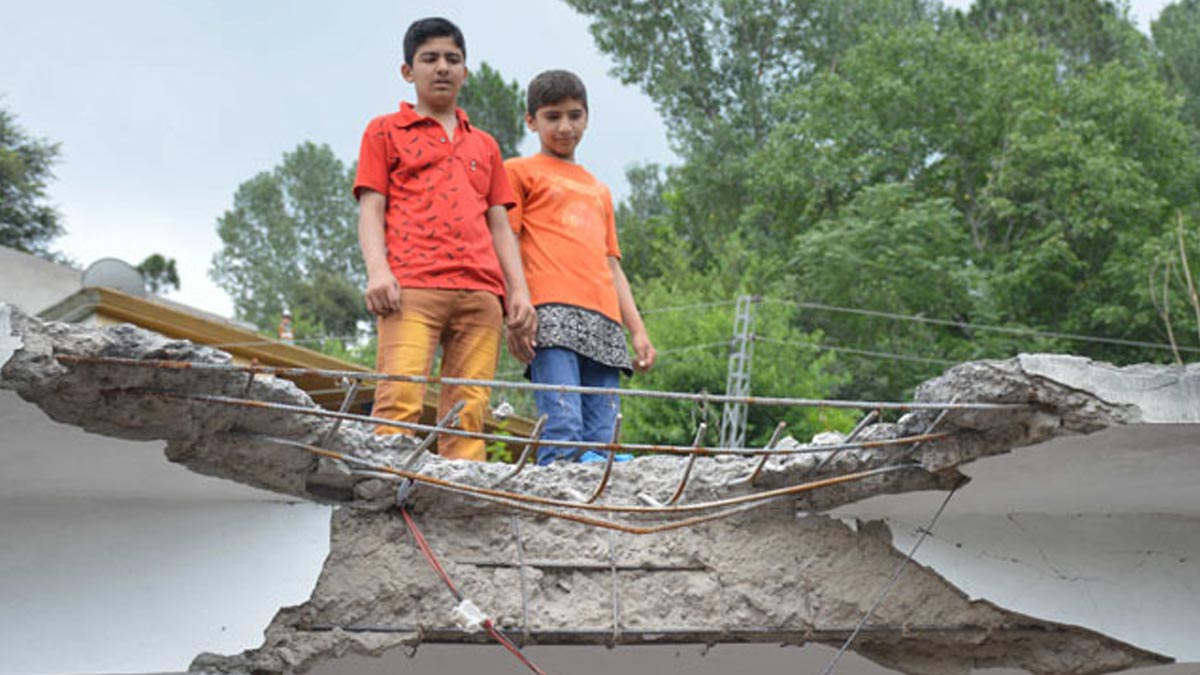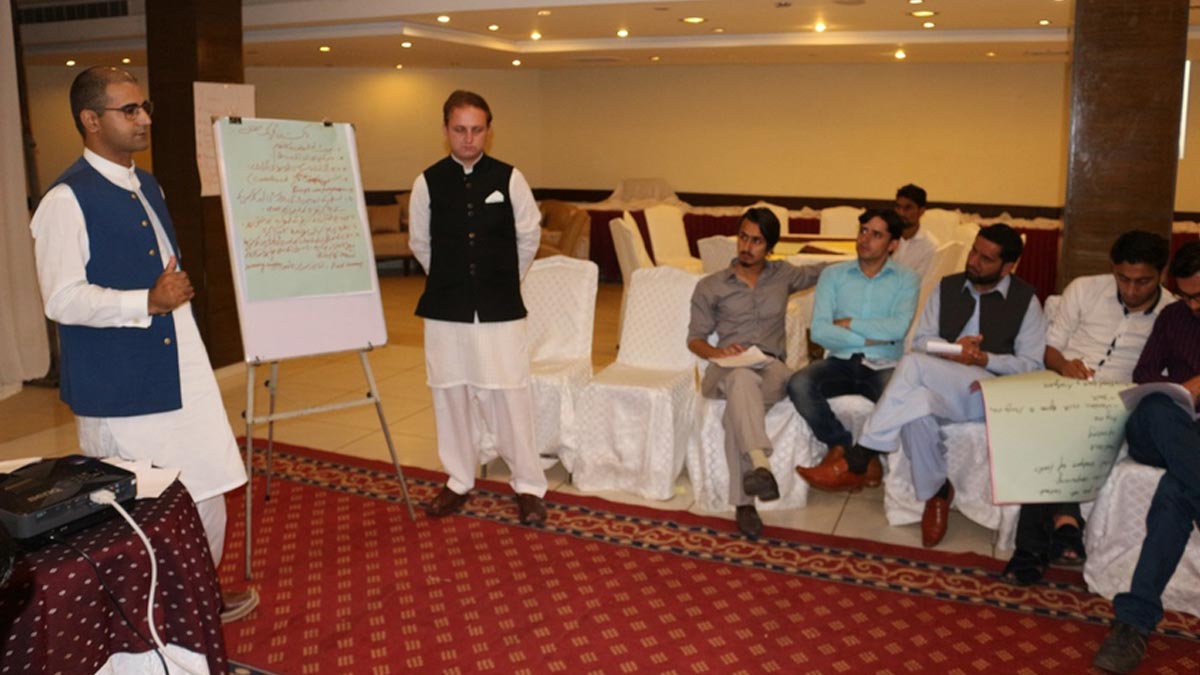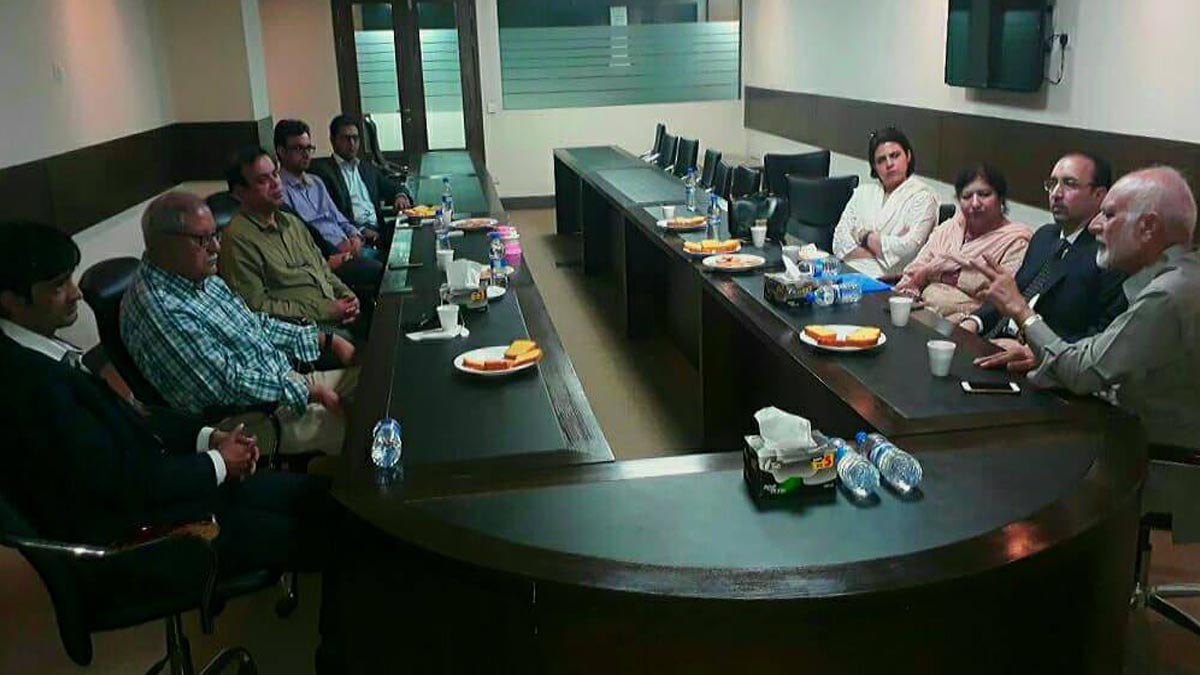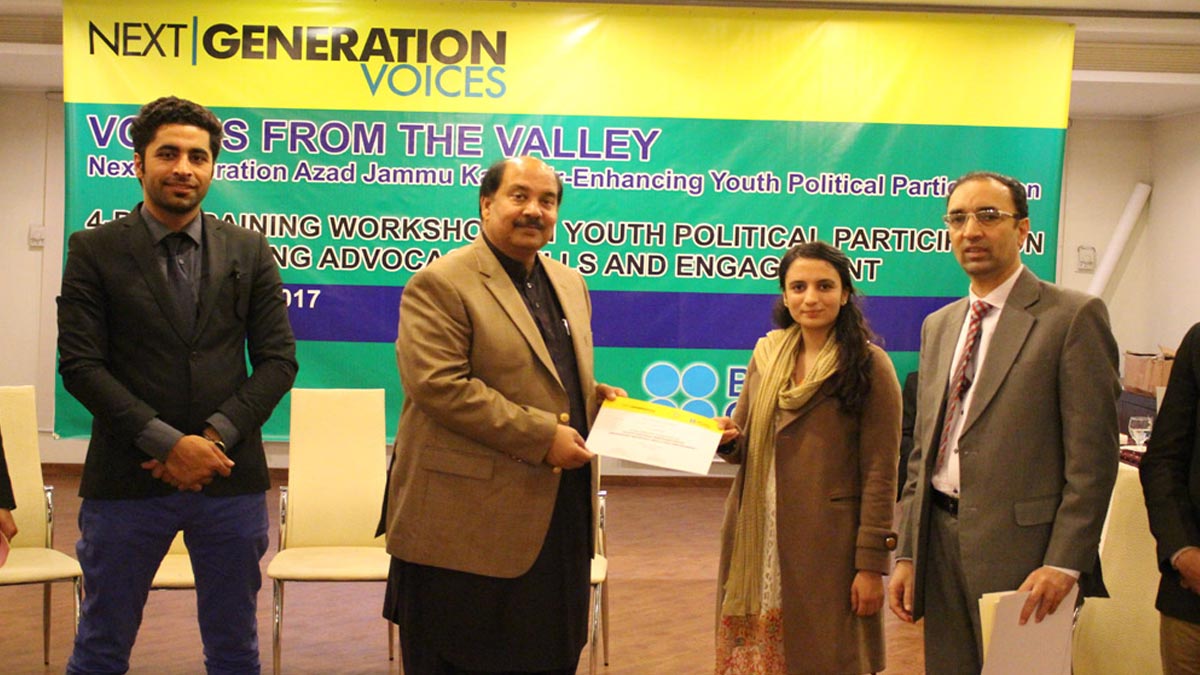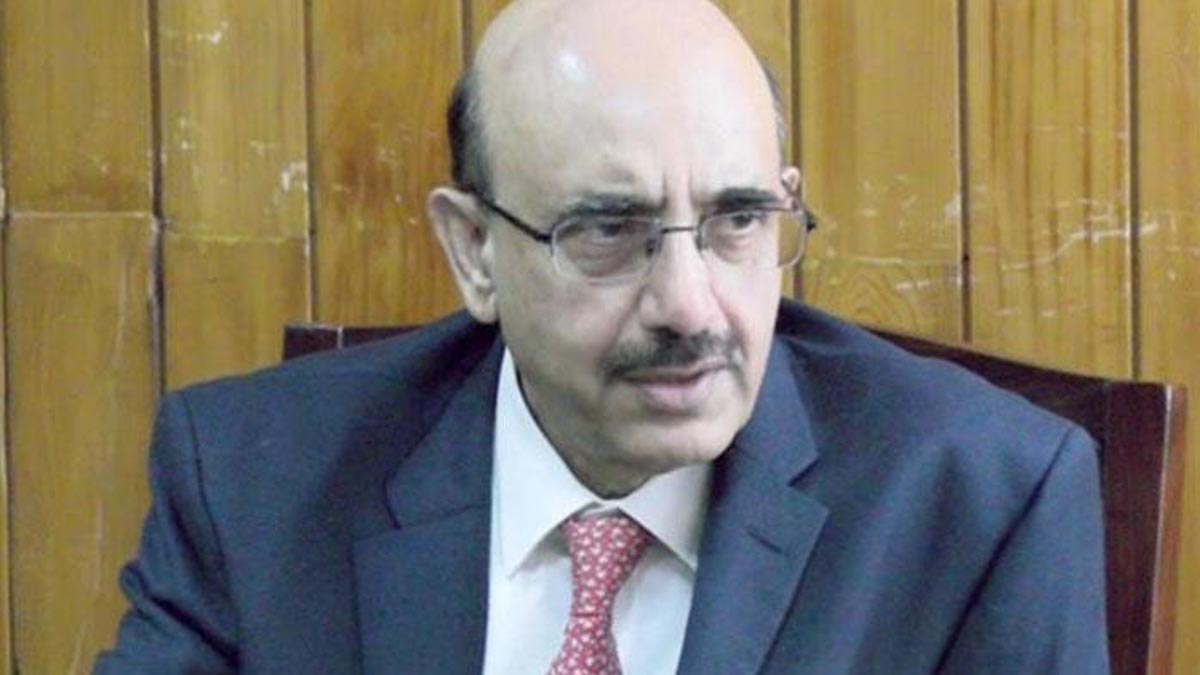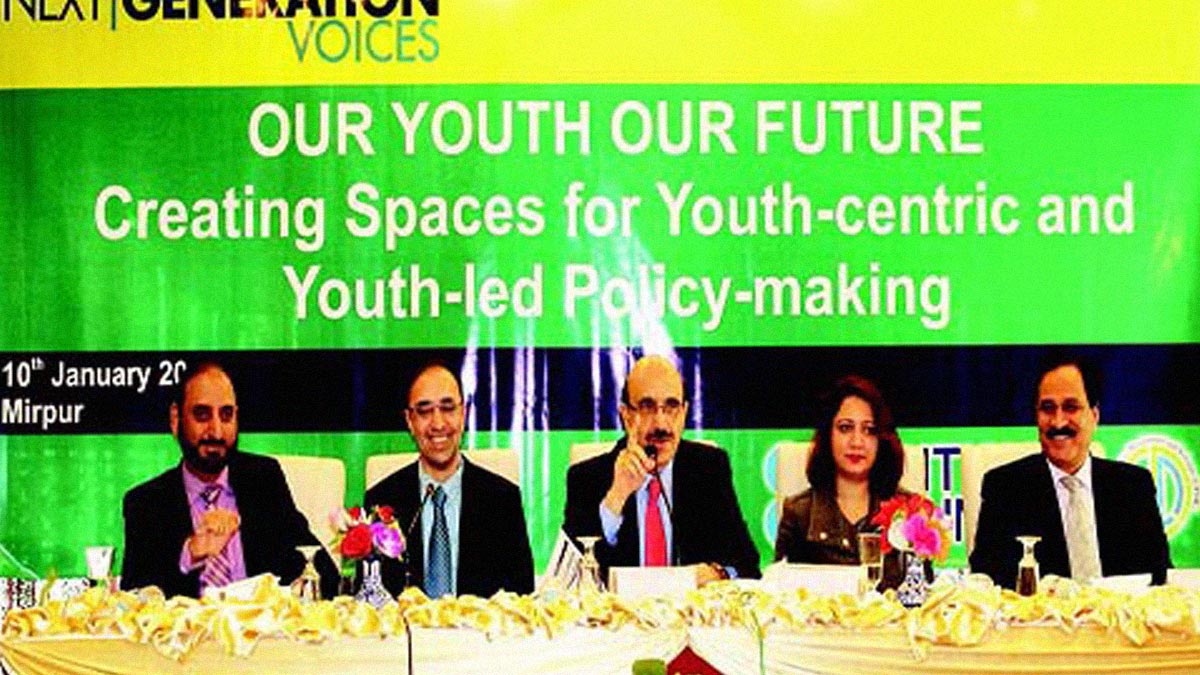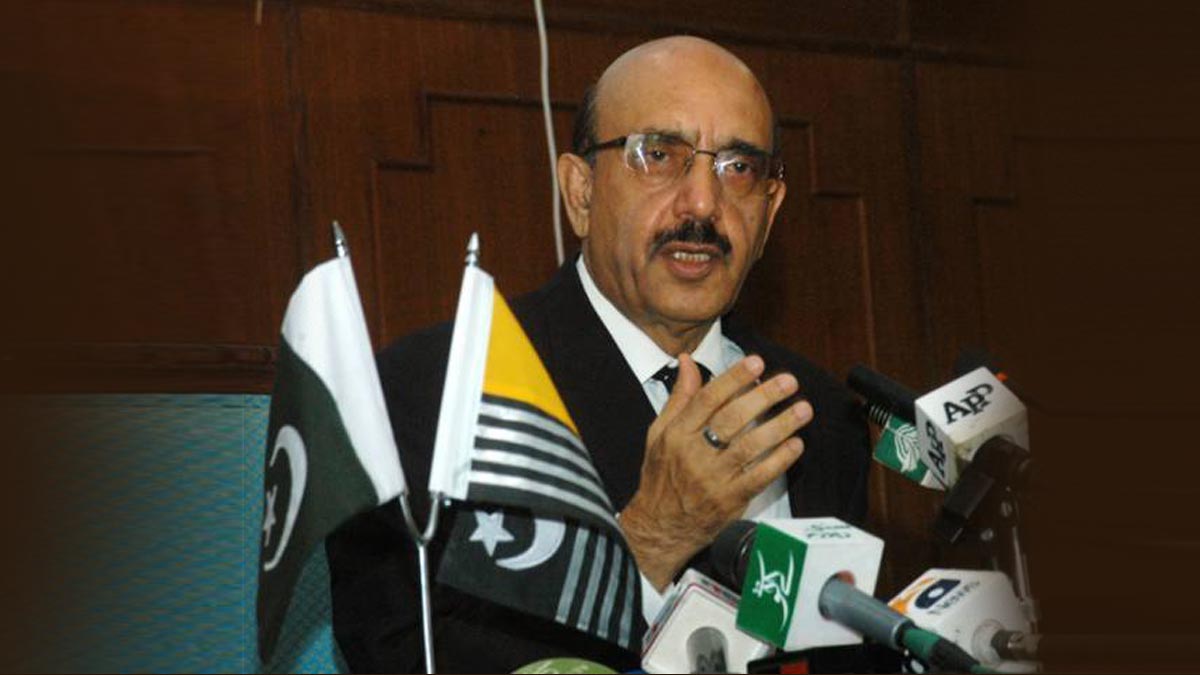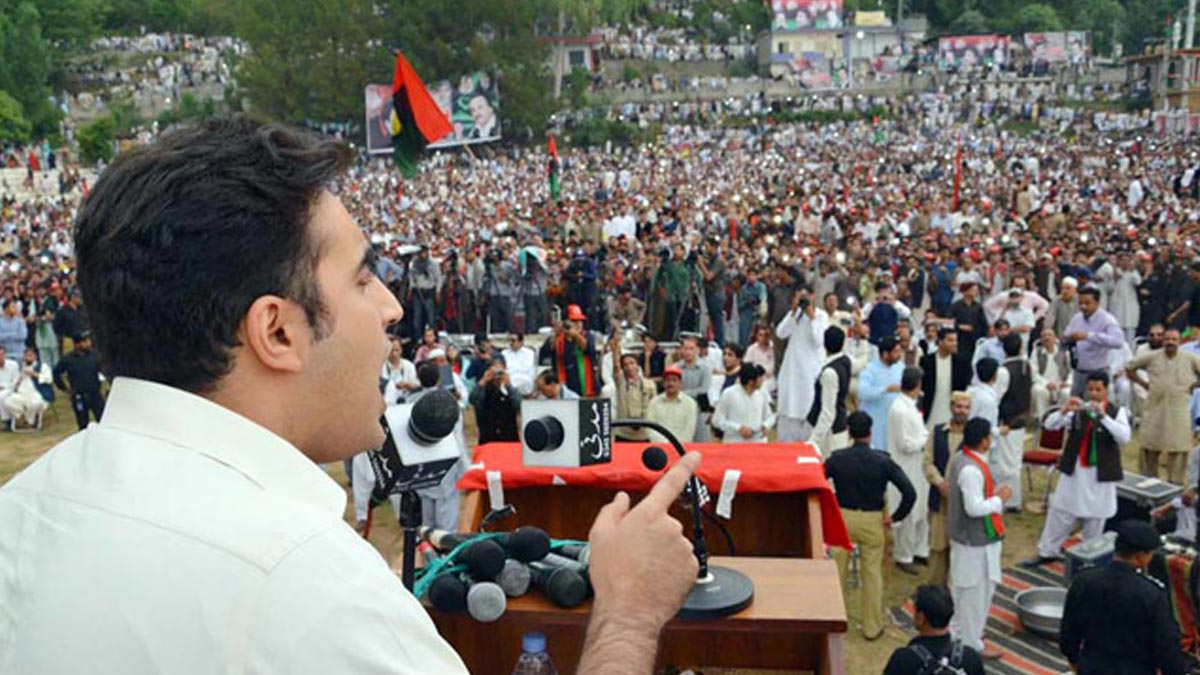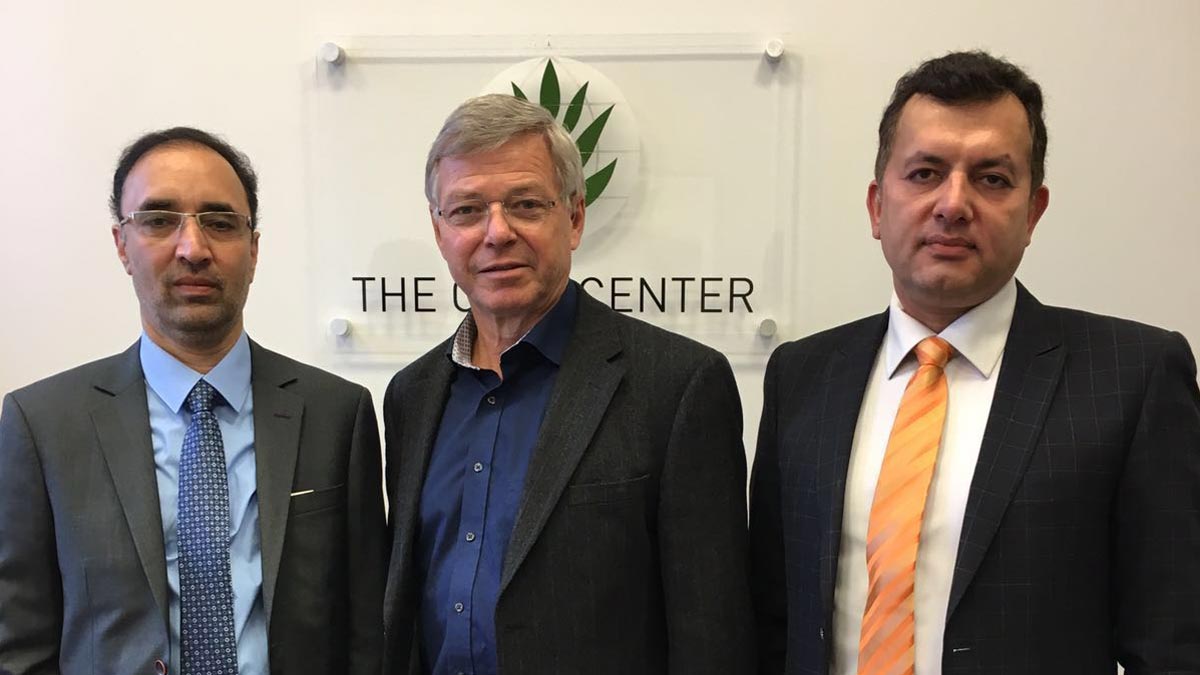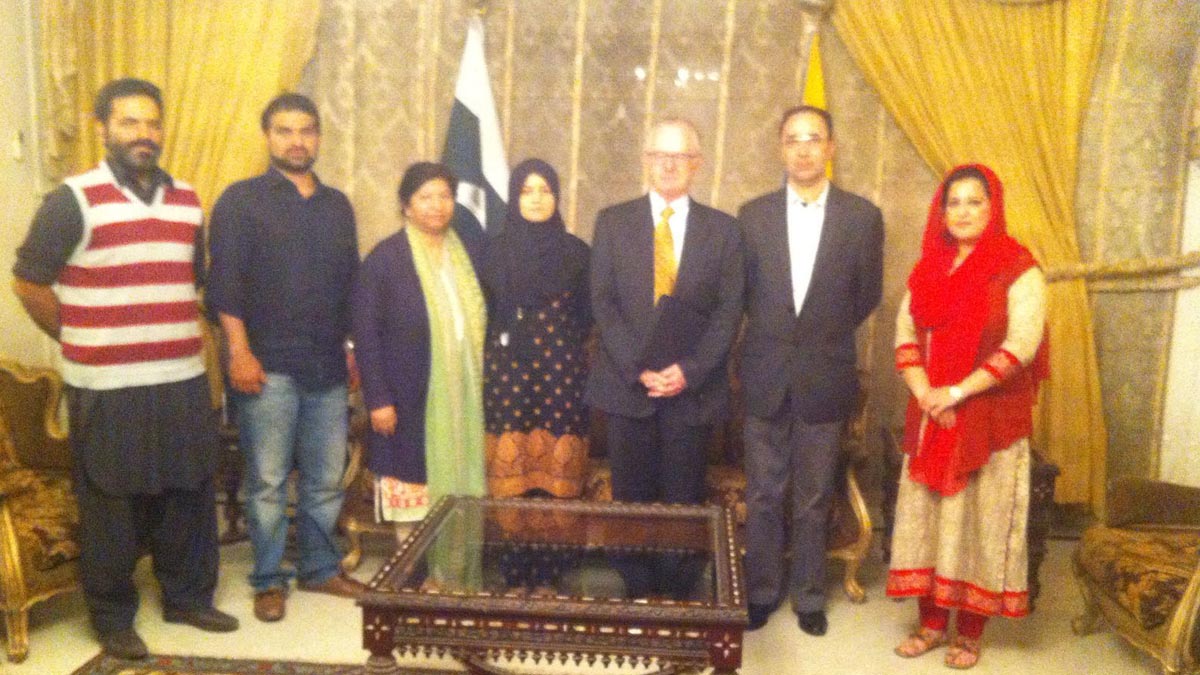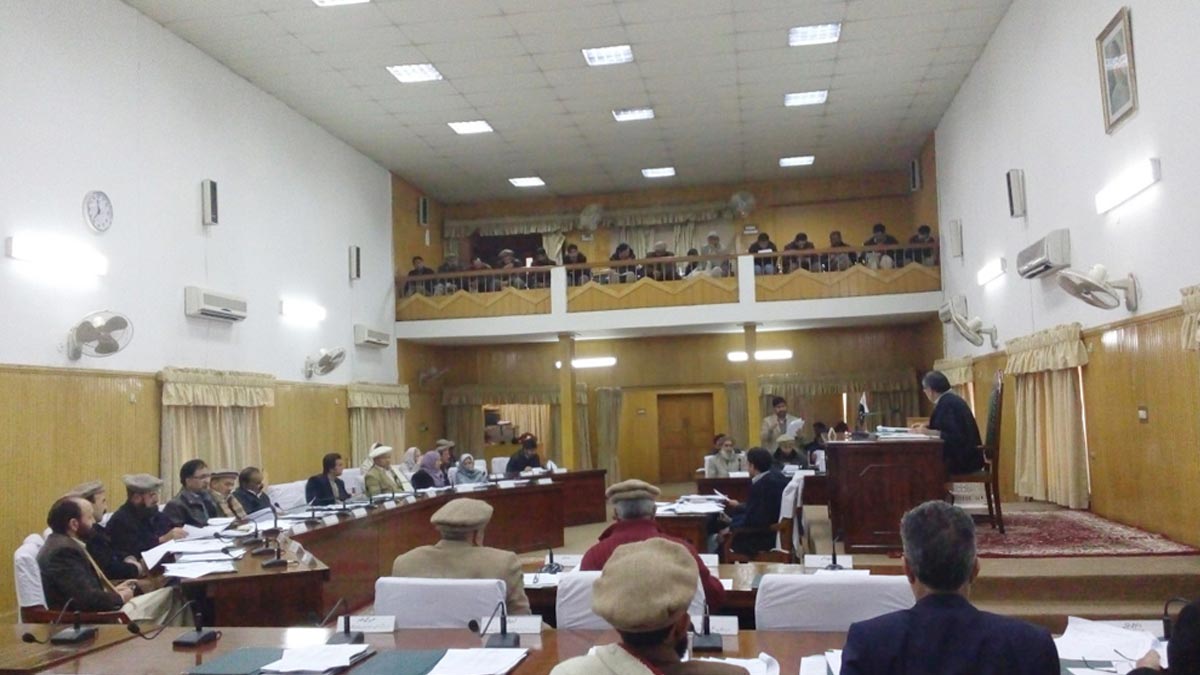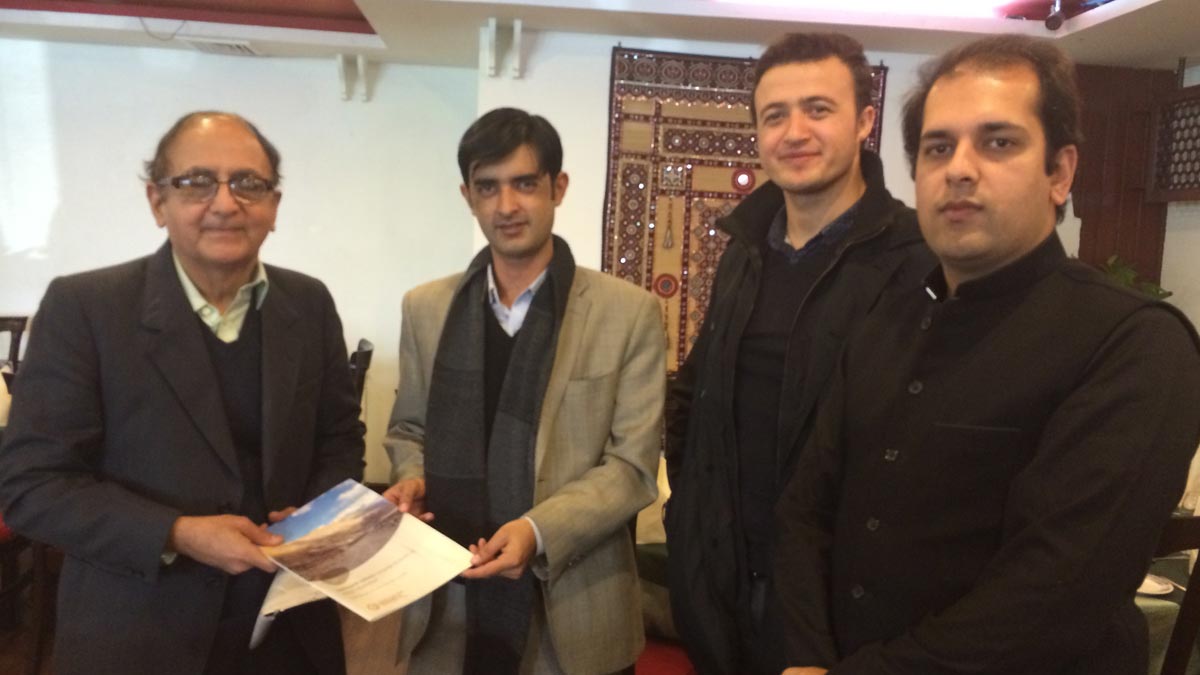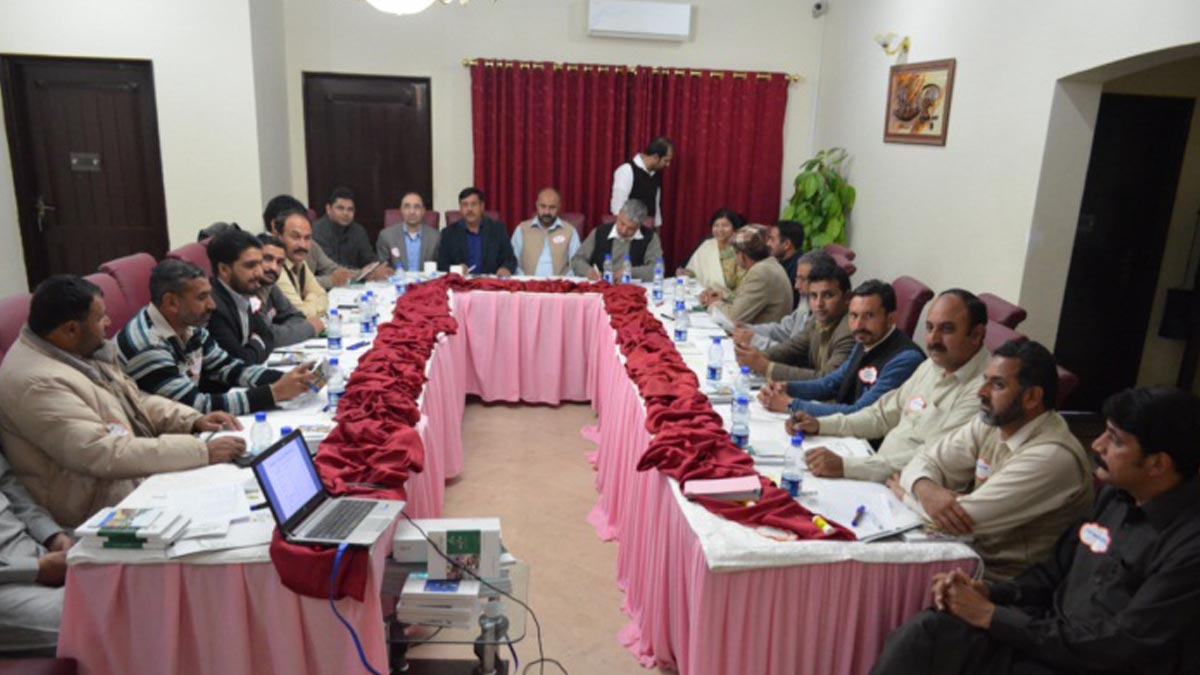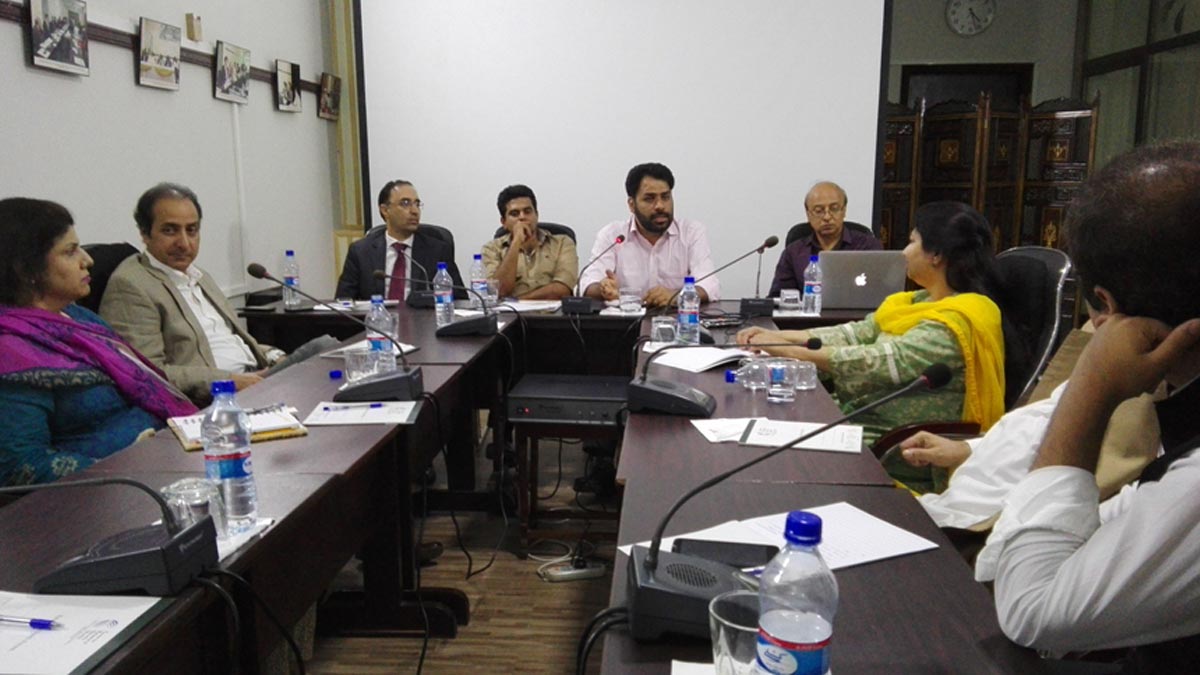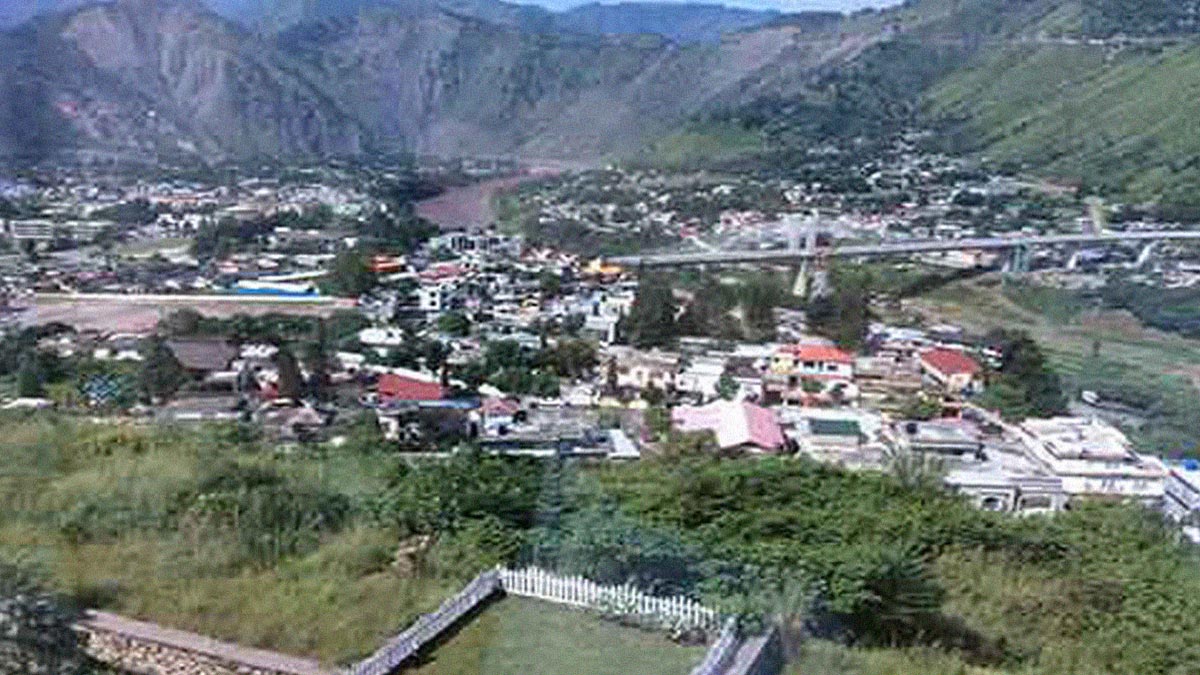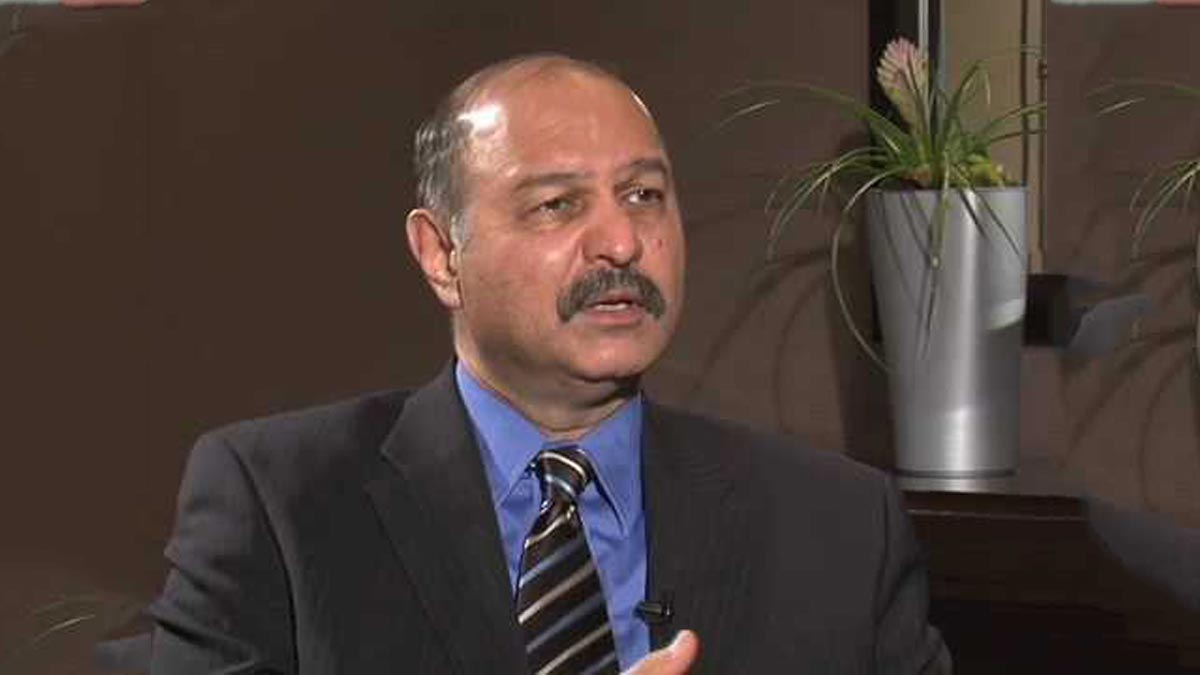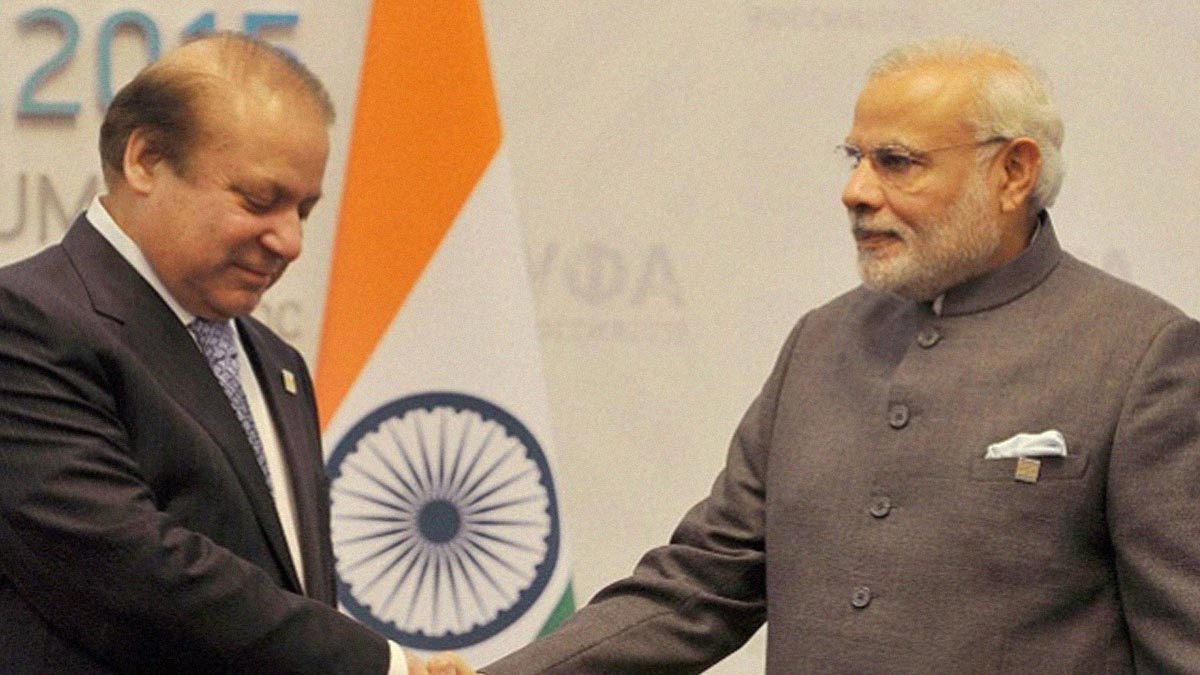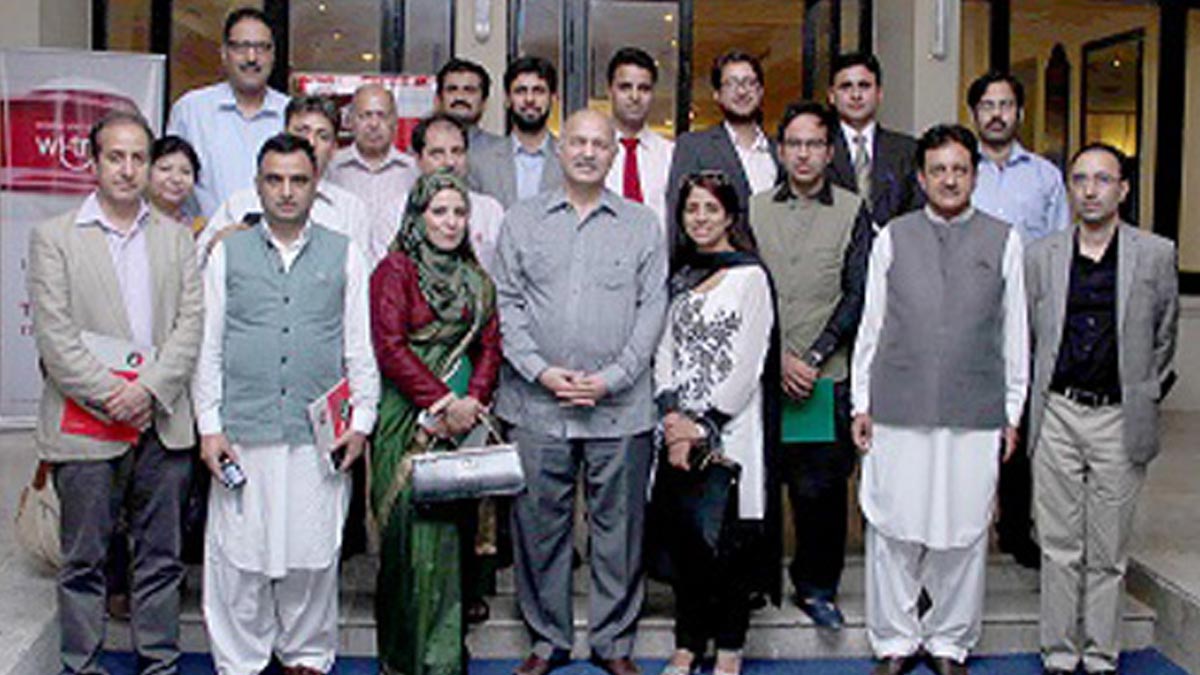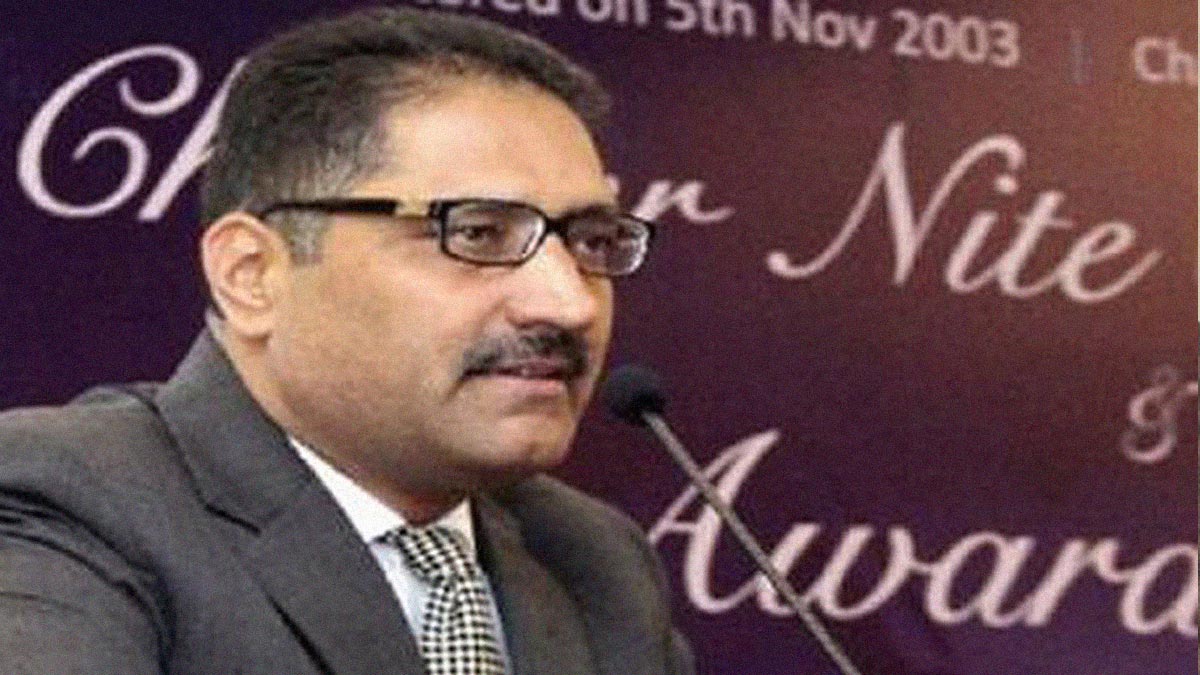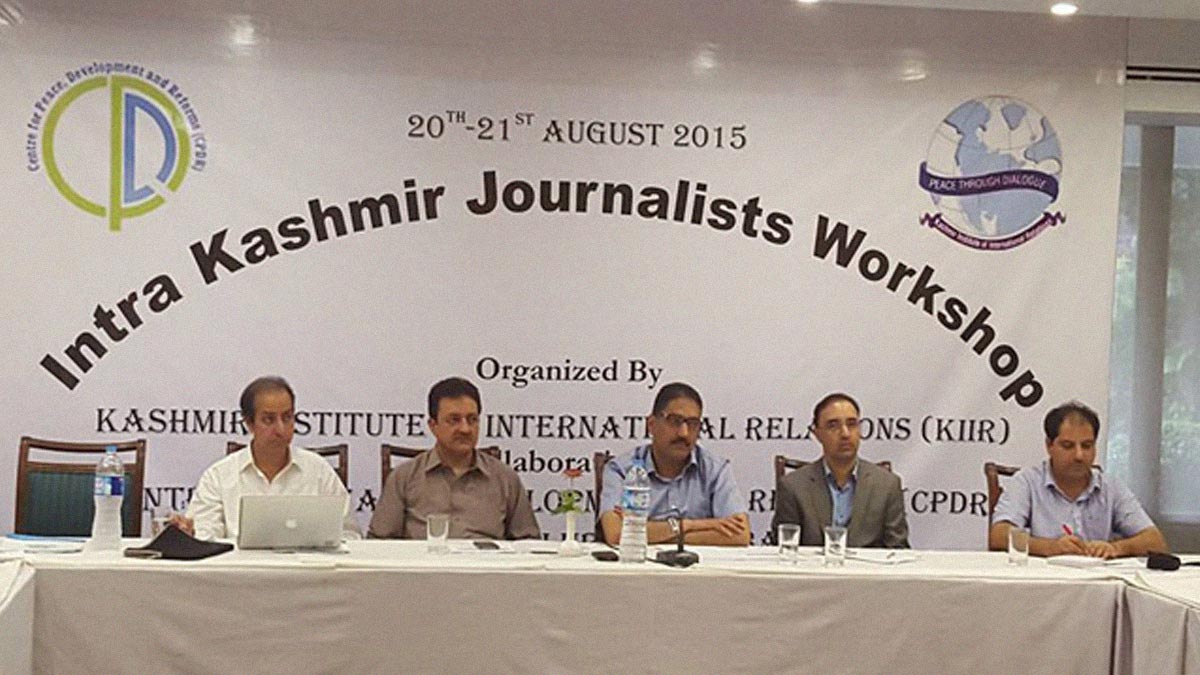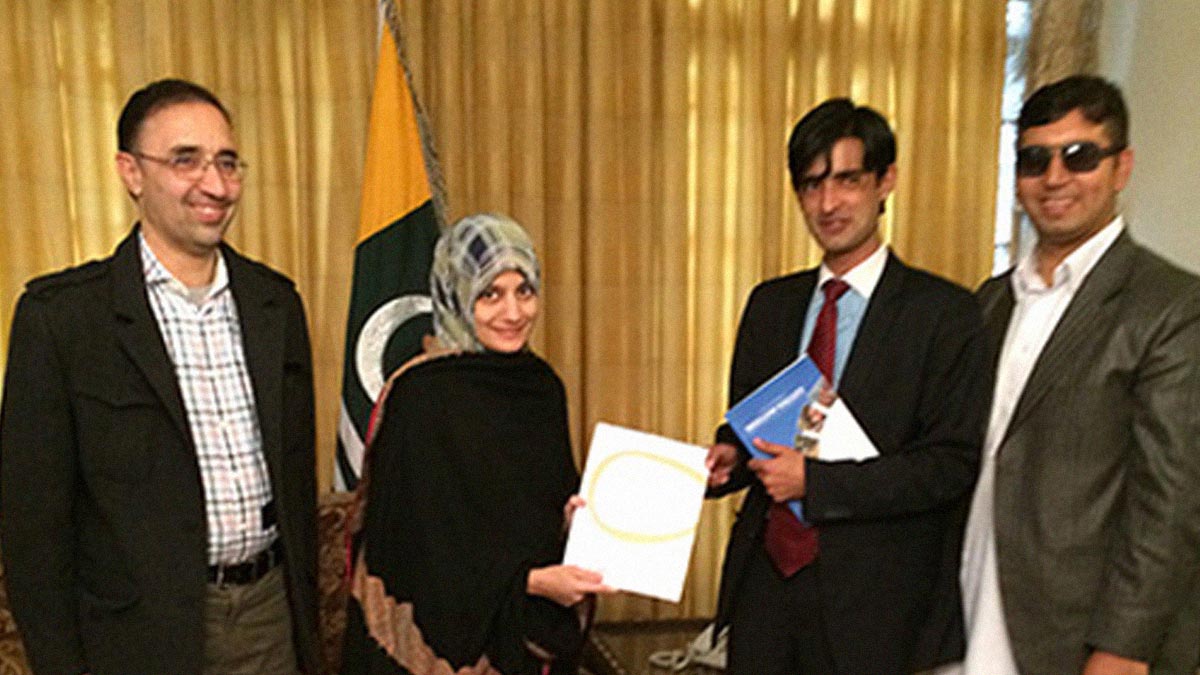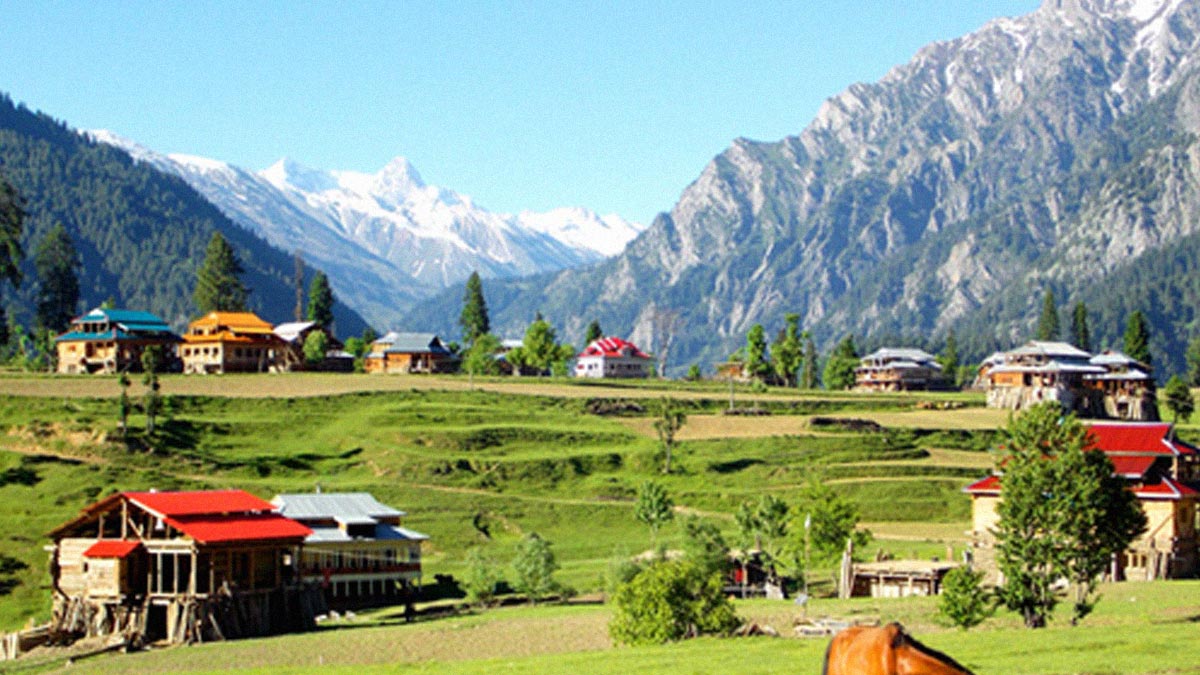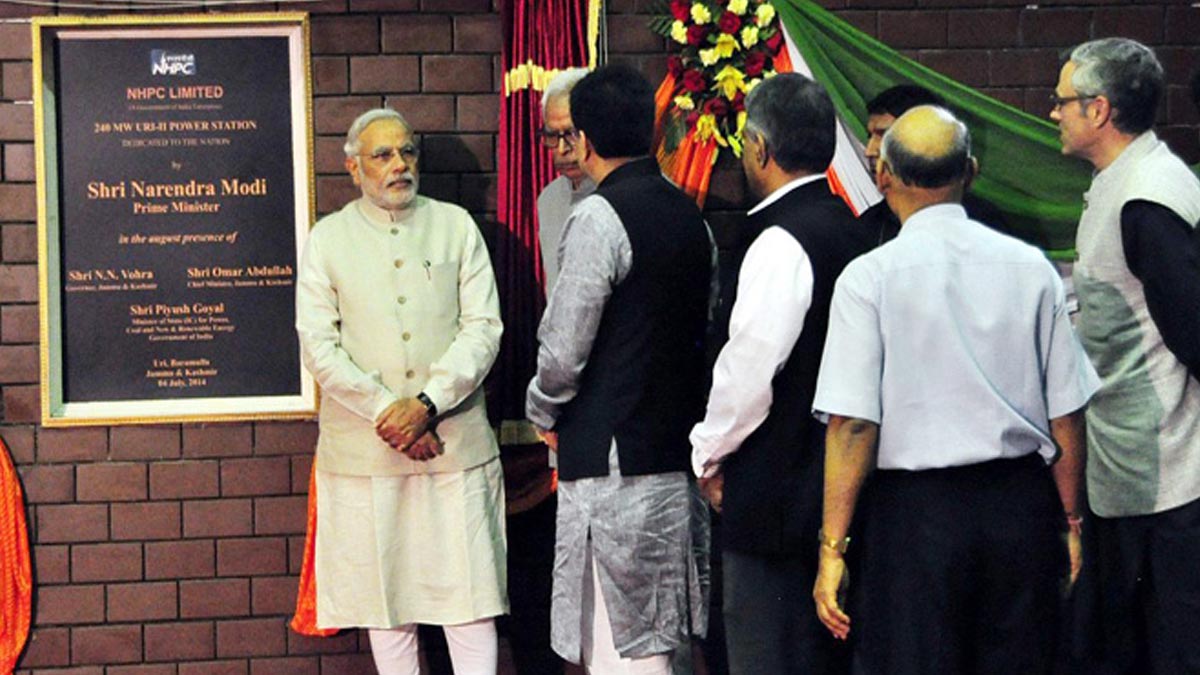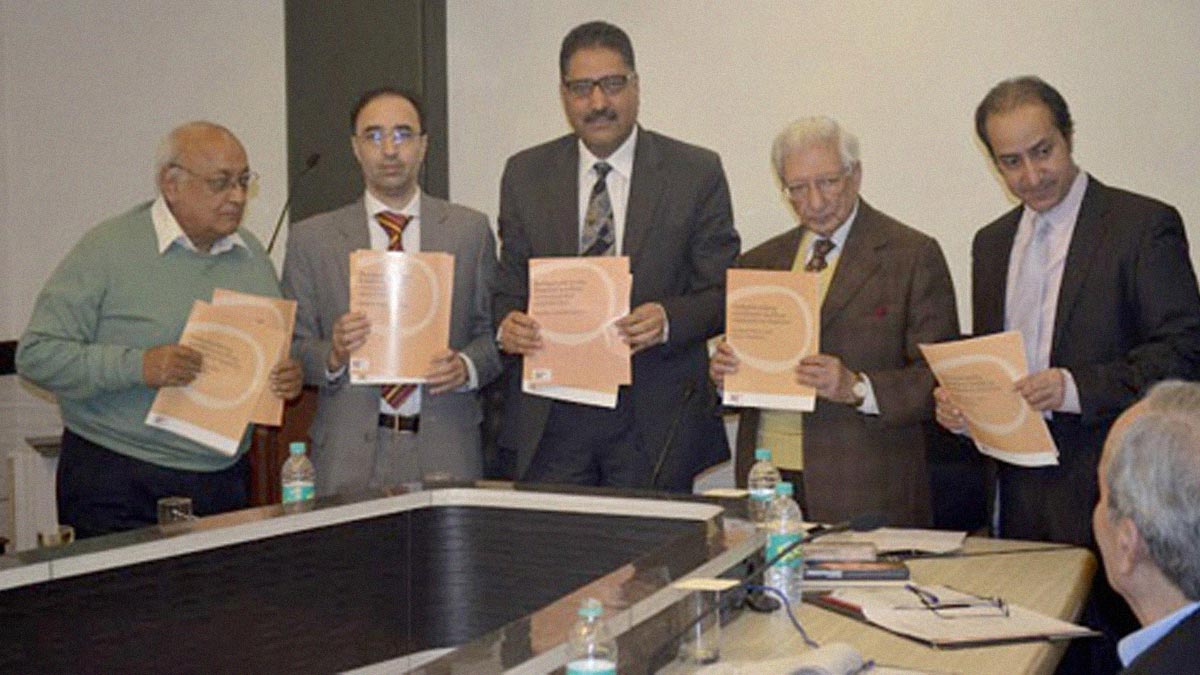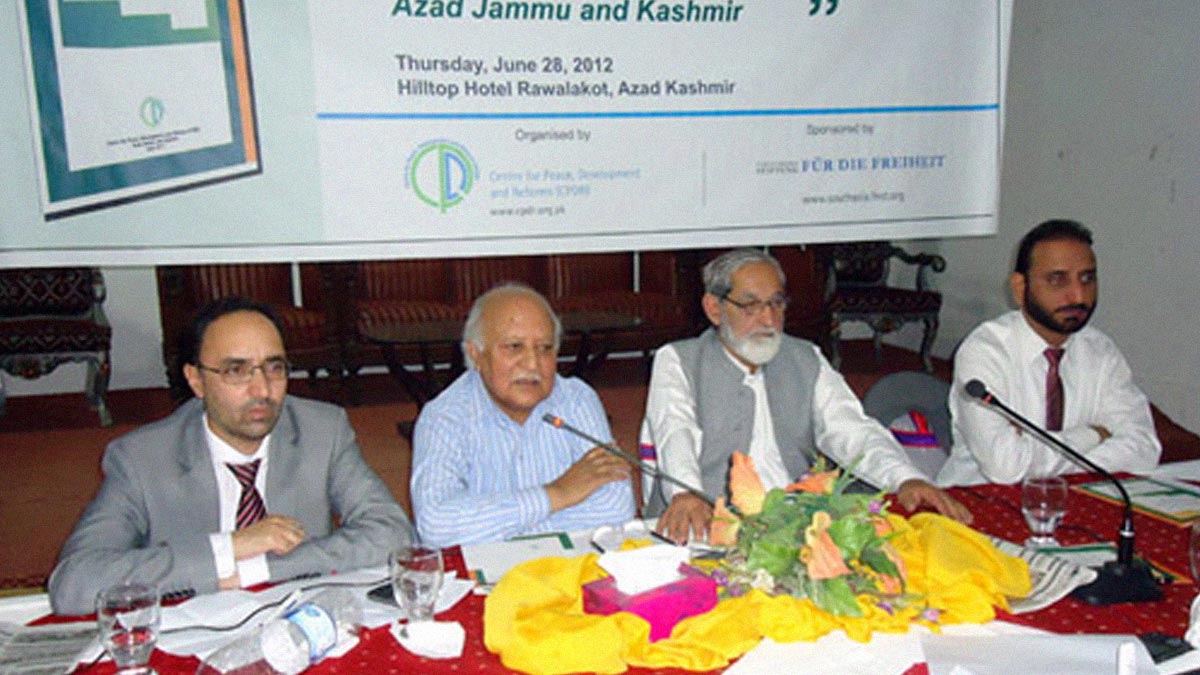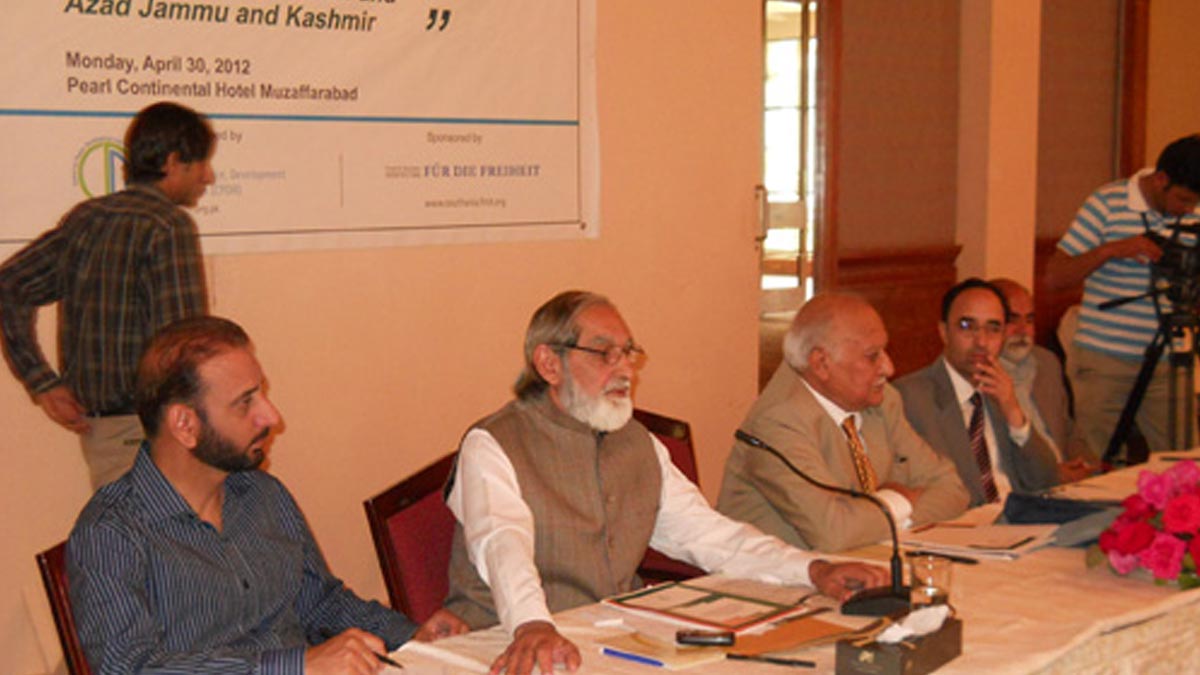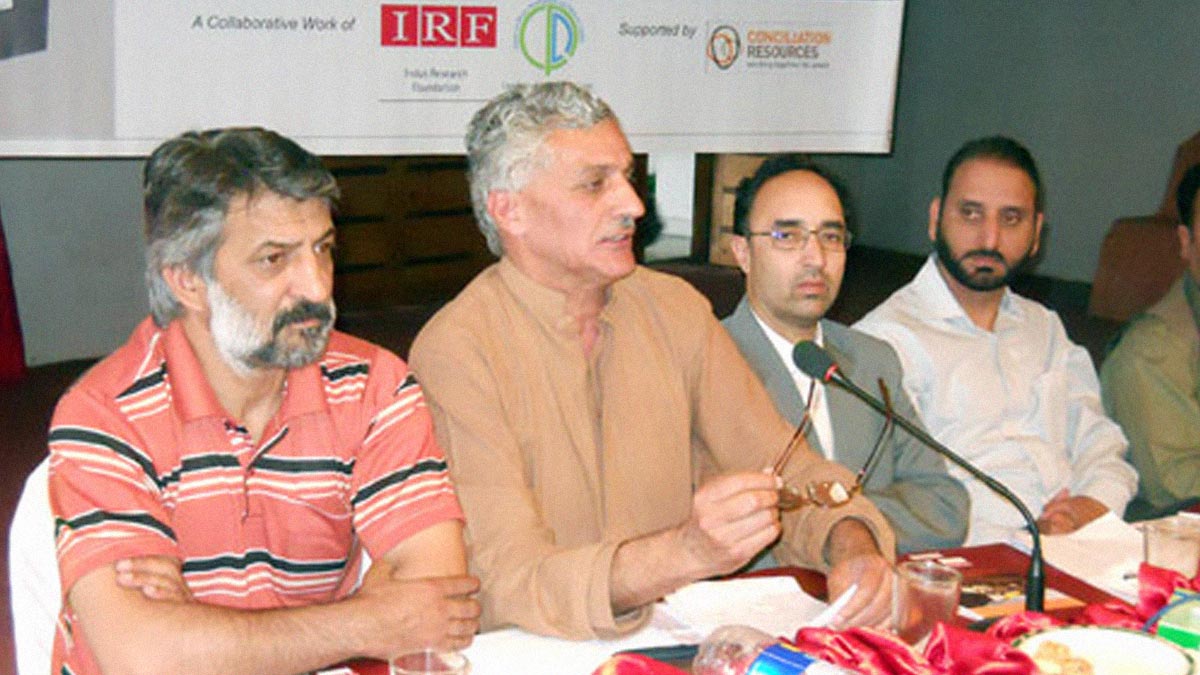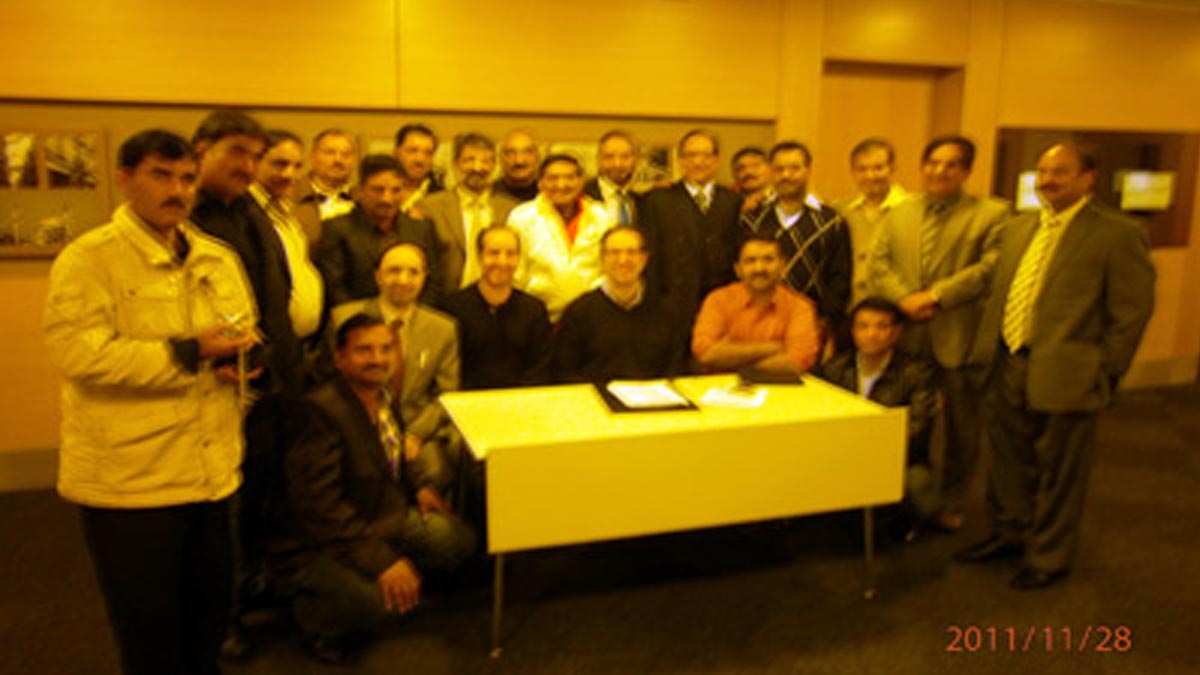- January 14, 2012
- @admin
- 0
- 14th January 2012
Leading politicians and civil society representatives demanded further empowerment of Azad Jammu and Kashmir (AJK) in the context of 18-19 constitutional amendments in the constitution of Pakistan. It was sought that the upper house namely Kashmir Council’s executive power should be drastically reduced to empower AJK assembly and elected government in a true manner. These views were expressed in a report launch function published by the Centre for Peace, Development and Reforms (CPDR) Mirpur/Islamabad.
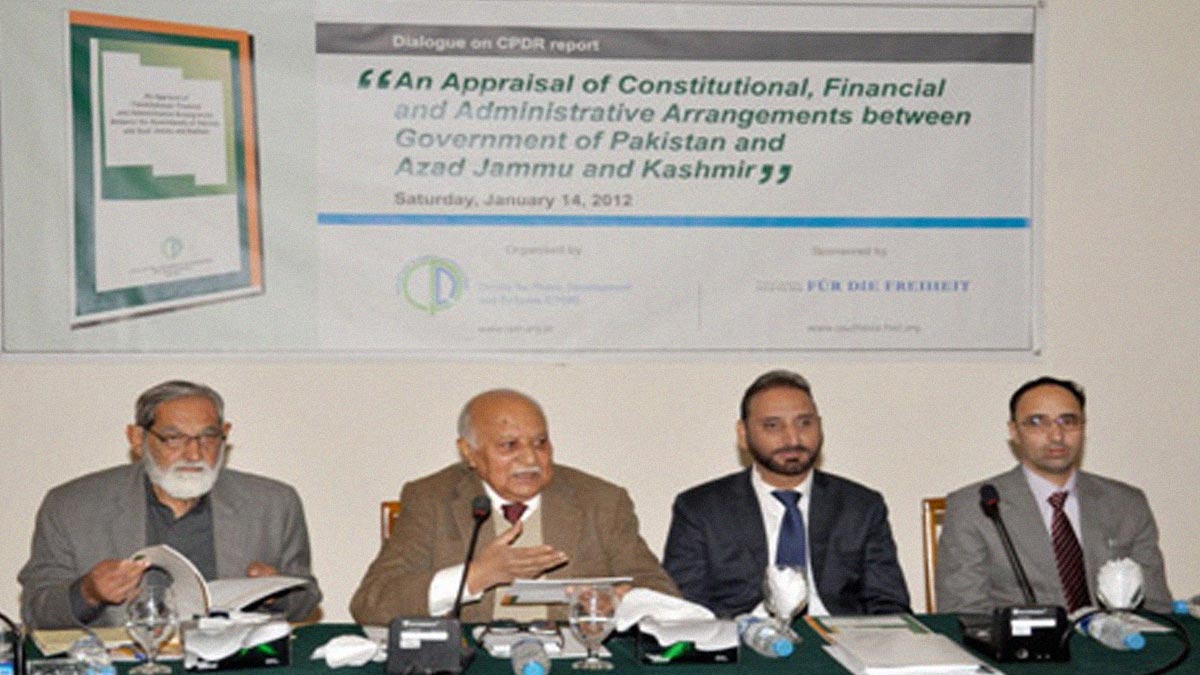
The report titled “An Appraisal of Constitutional, Financial and Administrative Arrangements between the Governments of Pakistan and Azad Jammu and Kashmir” was launched in Islamabad on Saturday in an event that was attended by the cross section of the society from AJK with diverse backgrounds including two former Prime Ministers and Presidents, leading Kashmir politicians including head of three major parties, civil society activists, jurists, former and serving bureaucrats, academics, and intellectuals.
Tariq Masud, Chairman of CPDR spoke about the background of the report and elaborated future plans of action to translate report’s recommendations into reality. He said that the idea behind this study was to analyze existing arrangements between governments of Pakistan and Azad Jammu and Kashmir as from time to time it has been criticized by various segments of the society. Yet no attempts have ever been made to undertake a structured discussion on the subject, involving all stakeholders. No documented study is available at present to indicate what the aspirations of the people are; and what kind of constitutional relationship people of Azad Kashmir wish to maintain with Pakistan at this point in time, he maintained. He briefed the participants that CPDR report is finalized and authored by a small representative committee in light of the broad consensus that had emerged during the previous roundtable held and one-to-one interviews with experts and political leadership by ensuring that key voices from AJK political parties and civil society must be heard and incorporated.
In view of importance of the subject and immense positive response of the AJK opinion leaders, CPDR decided to further carry forward its initiative by holding a series of dialogues with the representatives of civil society in Islamabad and various parts of Azad Jammu and Kashmir to sensitize opinion-makers and build pressure to translate its recommendation into reality.
Justice Bashart Ahmad Shaikh, who headed a subcommittee which authored the said report, highlighted the major themes of the report. In his key note address he stressed on the resumption of AJK Government Act 1970 which maximized local rule leaves only few subjects in the hands of federal government. He categorically declared that restoration of Act 1970 is inevitable for the socioeconomic and political development of AJK.
He lamented that during last 36 years the Kashmir Council, which enjoys executive authority has not taken over relevant departments and it has failed to live up to the expectations of the people of the AJK saying that “for last three decades the Kashmir Council could not establish its office/secretariat in AJK, even it could not setup a rest house in the region”. He said that the excessive executive and legislative powers of AJK Kashmir Council over 52 subjects including taxation made AJK assembly a power less institution. He believes that taxation should be coupled with representation as Act 74 enabled Council to levy tax, thus giving a greater control over AJK’s financial autonomy. The performance of Council remained least satisfactory and it has failed to live up to the expectations of the people of the region. Former Justice believes that Council is bent on alienating Kashmiris from the council itself. Even industrial issues of AJK are heard in Industrial Courts of Lahore instead of AJK.
Raja Farooq Haider former Prime Minister of AJK believes that Act 74 was approved and promulgated in haste and opined that it has no legal sanctity since AJK needs to be treated under article 257 of 1973 constitution of Pakistan which provides a greater say in local rule. He further believes that Council is supra constitutional body and effective governance cannot be provided under such arrangements and termed it as extension of colonial rule. Favoring the complete revamping of Act 74, he opinionated that new constitutional mechanisms between Pakistan and AJK should be evolved and Council’s authority over legislation, taxation and other administration should be given back to assembly of AJK.
A lively question and answer session followed, in which members of the audience spoke about different aspects of the report and its policy recommendations. The event was attended by senior political leadership of AJK such as:
Participants included the following:
- Sardar Sikandar Hayyat Khan, former President and Prime Minster of Azad Jammu and Kashmir
- Maj Gen ® Muhammad Anwar Khan, former President of Azad Jammu and Kashmir
- Raja Farooq Hiader Khan, former Prime Minster of Azad Jammu and Kashmir and leader of the opposition in AJK Legislative Assembly.
- Mr. Abdul Rashid Turabi, President Jammat-e-Islami, AJK
- Sardar Khalid Ibrahim Khan, President Jammu and Kashmir Peoples Party
- Khawaja Farooq Ahmad, Senior leader of the PPP and former minister.
- Mr. Abdul Raziq, PML-Q, Advisor to Prime Minister Azad Jammu and Kashmir
- Dr. Najeeb Naqi, former minister and presently Member of the AJK assembly, Muslim League- N
- Mrs. Farzana Yaqub, PPP Minster AJK government. (elected from a general seat)
Former Prime Minister Sardar Skindar Hayyat Khan termed the report a path-breaking work which captures wide spectrum of prevailing thinking in AJK. Galvanizing support for the constitution of 1970, the two times former Prime Minister contemplated on the empowerment and representative character of the said Act which defines the limit of cabinet and Ministers. Criticizing the current nature of electorate and expansion of ministries he opined that Act 74 does not define any limit for the ministries or on the “number” for cabinet members which in Act 70 were clearly defined. Since government of Pakistan has given maximum autonomy to the provinces through 18th amendment, he believed that that this autonomy should be extended to AJK as well. Defining the relationship between State of AJK and Pakistan former Prime Minister AJK opined that AJK should be treated under article 257 of 1973 constitution of Pakistan for provisional time and all 52 subjects of Council be given back to government of AJK.
Columnist and Executive Director CPDR Ershad Mahmud, said that the idea behind the report was to bring into public domain whatever Kashmiri community is talking behind the curtains and finally open up a debate among local stakeholders to bring clarity of goals. He said that there is overwhelming consensus among various shades of public opinion in AJK that current status quo is unacceptable. He suggested that to build on existing consensus all political parties in AJK need to explicate that implementation phase should be segmented in different phases where initially political leadership has to develop and evolve common minimum agenda within themselves after deliberations with the cross section of society.
Ershad Mahmud maintain that to bring any constitutional or administrative change in the existing set up it is imperative to have a dialogue with the civilian and military leadership. He opined that government has to focus on accountability and transparency in order to promote good governance since successive governments have a very poor record of transparency and service delivery in AJK.
Former member AJK Council and minister Mr. Najib Naqi annotated over the powers of AJK Council, he explained that Council is a complete autonomous and unaccountable body. Ranges from appointment of judges to financial disbursement, council enjoys full autonomy. It generates revenues from taxes paid by people of AJK. He delineated that council is extremely powerful body devoid of any checks and balances it is entirely autonomous and performs functions of Central Board of Revenue (CBR) as well. It has authority to allocate as much money as it desired since Council schemes are exempted from Executive Committee of the National Economic Council (ECNEC) or NEC as well. The development budget of Council amounts to Rs. 2200.000 Million 2010- 2011, from the total budget of Rs. 9007.201 Million.
Ms Ayesha Atroba Khan active civil society member form Gilgit Baltistan stressed on the reviving and reintegrating the linkages between AJK and GB. She believes that institutional integration between GB and AJK can be a step forward in empowerment of people of both sides. She believes that though self governance package is a significant development for rights of people of GB towards Gilgit Baltistan but empowerment of people but this autonomous status is in its nascent stage and very little seems to have been accomplished on ground. Considerable expectations are attached to it and how this package takes shape has long-term implications on the region.
Abdul Rashid Turabi, head of the Jammat-e-Islami AJK argued that Act 74 was framed after the fall of Dacca and Shimla agreement under a totally different environment. Contemplating on era of 1970-74 as the stable era in constitutional history of AJK, it is widely believed that AJK government cannot govern and function effectively in the presence of Act74.
President Jammu and Kashmir People Party Sardar Khalid Ibrahim Khan argued that AJK like other democracies has long constitutional history. We made huge sacrifices to achieve present political status. More specifically United Nations Security Council resolution of 1950 also necessitates for democratic method of voting rights. He renders “Act 70” as an ideal form of government for the state of AJK which entrusts legislative and executive powers to AJK and empowered in decision making. He also underlined the need of revisiting Act 1974 to annul existing anomalies in the constitution. He suggested that to elections in Pakistan and AJK should be held on the same day otherwise interference from the federal government can’t be avoided.
Deliberating over the role of Council participants were of the view that role of Council should purely be a coordinating body between State of Pakistan and government of AJK. Former President Maj Gen(r) Sardar Muhammad Anwar Khan believes that, people are discontented over Act of 74 in general and AJK Council in particular. Appointment of senior Judiciary and Chief Election Commission should be done in consultation with leader of the House of AJK legislative assembly, leader of opposition, finance minister, and minister of Kashmir affairs to the minimum thus ensuring transparency and institutional mechanisms.
President CPDR Mr. Zulfiqar Abbasi explicated that today is the world of economy and AJK is extremely unfortunate land having virtually zilch international investment and economic growth. The development of the private sector in particular has totally been neglected, since the most promising areas and resources of AJK, e.g. harnessing foreign remittances, investment in industrial development, exploration of natural resources, creation of employment opportunities and exploitation of water resources, are lying with Council which is beyond control of AJK government thus impede the socioeconomic development of AJK. Though 18th amendment have empowered the provincial governments’ by giving greater autonomy and abolished the concurrent list but it was not extended to AJK. Article 31 C schedule (2) of Act 74 runs contrary to the fundamental human rights.
Due to lopsided relationship between Government of AJK and Pakistan former is financially contingent upon later resulting in utter dependency in decision making as well. Further deliberating on economic front Mr Abbasi stated that income from the Mangla Dam is around 7 billion Rupees per annum, and the dam has been operational and making profit for past 36 years. By multiplying figures 252 billion and that is what government of Pakistan owes to AJK which is contrary to what the WAPDA has been regularly paying to Khyber Pukhtoon Khawa government as Net Hydel Profit.
The AJK is denied from sales tax and net hydel profit and royalty which alone stands for more than 4 billion and 14 billion for sales tax. Similarly AJK has no share in National Finance Commission (NFC). Sectors like banking, electricity, ports, oil and gas unlike other provinces rest with Council. AJK has a major share of almost 25% in foreign remittances of Pakistan and billions of rupees are deposited in the banks of AJK. But despite having major share in revenue no any bank in AJK offers loans to the AJK citizens resulting in regressing economic activities. He believes that there is dire need to educate people and enhance their skills and potential to produce a human capital that can harness the natural potentials of PaK to the optimum level.
Mr. Mahmud Gardezi, businessman from Bagh district, lamenting on the institutional relationship compared the water agreement of Maharaja Hari Singh and Punjab government against the current arrangements between WAPDA and Government AJK on Mangla dam and reckoned the former far better than the later on modus operandi. It is believed AJK Government has not well defined modalities and modus operandi to engage with Indus River System Authority (IRSA) on water and natural resources management.
The key recommendations of report are follows:
1- Azad Jammu and Kashmir Council
1.1- The Azad Jammu and Kashmir Council should be retained, and entrusted with co-ordination responsibilities between the Governments of Pakistan and AJK in respect of the subjects mentioned in section 31(3) of Act 1974.
These include responsibilities under the UNCIP resolutions, defense & security, currency, foreign affairs, and foreign trade.
1.2- The Council should consist of the Prime Minister of Pakistan, the leader of the opposition Pakistan, and three ministers of the Government of Pakistan. AJK should be represented by the Prime Minister of AJK, the leader of the AJK opposition, and three members of the Council (to be elected by the AJK Assembly).
1.3- All executive and legislative powers should revert back to the AJK
Government and the Legislative Assembly. Since this can only be done with the approval of the Government of Pakistan (section 33 of the 1974 Act), the Government of Pakistan must agree to the aforesaid in the greater interests of the people and for the political rights of the people of Azad Jammu and Kashmir.
2- Judicial Reforms
While reverting executive powers to AJK Government regarding appointing of Judges of Supreme Court and High Court, an appropriate institutional mechanism should be provided. For this purpose a judicial commission may be set up, as has been done through the 18th and 19th Amendments to the Constitution of Pakistan.
3- Election Commission
3.1- An independent Election Commission needs to be constituted to ensure fair and impartial elections in AJK.
3.2- The Chief Election Commissioner should be appointed on the recommendation of a Parliamentary Committee comprising members from both Treasury and Opposition Benches of AJK legislative assembly.
4- Allied Matters
The following important allied matters were also deliberated upon by the Committee.
4.1- Election on Refugees’ seats in Pakistan
a) One of the most important issues pertains to the representation of Jammu and Kashmir refugees settled in Pakistan. The present system of holding elections throughout Pakistan to elect members of AJK Assembly is the most cumbersome, and entails great effort and expense. The constituencies are large, unwieldy and unrealistic. Experience shows that these elections are usually subjected to underhand means. Non-State subjects, for example, can easily be enrolled in the electoral lists. The administration in the provinces of Pakistan cannot be controlled by the AJK Election Commission, so it cannot ensure free and impartial elections.
b) This system of refuges election should be discarded, and representation to refugees from Indian-administered parts of Jammu and Kashmir may be given by elections through the Assembly members on the basis of proportional representation. This would follow the pattern of the system envisaged in article 51 of Constitution of Pakistan (in which a list of candidates is provided by political parties before elections). Candidature should be based on possession of a State subject certificate. The preparation of electoral rolls throughout Pakistan for this purpose should be discontinued. Public debate on this subject should however continue so that a broad consensus may emerge on a future dispensation to replace the present system. The proposed system may be introduced after the 2011 elections are held.
4.2- Size of Cabinet There should be a provision in the AJK Constitution restricting the number of ministers. The number may not exceed a fixed percentage of the total number of members of the Legislative Assembly. Further, not more than two advisors with the rank of minister may be appointed.
4.3- Powers of the President and Prime Minister
4.3.1- The President may be required to act on the advice of the Prime Minister/Cabinet within a period of fifteen days, failing which shall be deemed to have been assented to.
4.3.2- The President may refer back any such advice to the Prime minister/cabinet for reconsideration. However when such advice is re-submitted to the President with or without changes, the provision stated in para 1.11.10 may apply.
4.4- Deputation Policy
Officers from the Government of Pakistan posted in AJK and vice versa should be sent, “On deputation”, on the basis of mutual consent, as envisaged by the “Deputation Policy” of the two Governments. An officer, when deputed, should be subject to the usual service rules of the borrowing Government.
4.5- Foreign investment, financing and assistance
The subject of foreign investment, financing and assistance should be brought under the concurrent jurisdiction of the Governments of Pakistan and AJK. Together, they can explore and exploit natural resources for the socio-economic development and uplift of AJK, especially in the fields of hydropower generation, water resource management, mineral resources and infrastructure development.
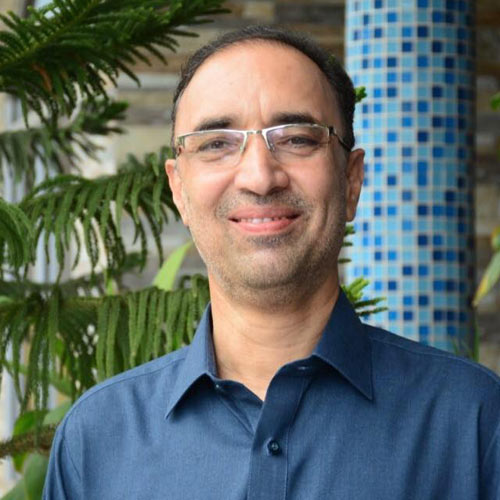
Ershad Mahmud
The writer is a freelance contributor. He can be reached at:


